Essay on William Shakespeare
500 words essay on william shakespeare.
William Shakespeare was certainly a very famous writer. The man is credited with an unbelievable thirty-eight plays, two narrative poems, several other poems and a whopping one hundred fifty-four sonnets. So let us take a peek inside the life of this genius with this essay on William Shakespeare.

Essay On William Shakespeare

Early Life of William Shakespeare
Shakespeare is the world’s pre-eminent dramatist and according to many experts is the greatest writer in the English language. Furthermore, he is also called England’s National Poet and also has the nickname of the Bard of Avon. Such a worthy reputation is due to his top-notch unmatchable writing skills.
William Shakespeare was born to a successful businessman in Stratford-upon-Avon on 23rd April in the year 1564. Shakespeare’s mother was the daughter of a landlord and came from a well-to-do family. About the age of seven, William Shakespeare began attending the Stratford Grammar School.
The teachers at Stratford were strict in nature and the school timings were long. One can say that William Shakespeare’s use of nature in his writings was due to the influence of the fields and woods surrounding the Stratford Grammar School on him.
Warwickshire was an interesting place to live, especially for those who were writers. Furthermore, the river Avon ran down through the town and because of this Shakespeare later got the title ‘Bard of Avon’. At the age of eighteen, William Shakespeare married Anne Hathaway, a woman who in age was eight years older than him.
Illustrious Career of William Shakespeare
After his education, William Shakespeare became engaged in theatrical life in London. Furthermore, it was from here that his career likely took off. Moreover, by the year 1592, the popularity of William Shakespeare had grown to be very much.
Shakespeare became a member of one of the famous theatre companies in the city. Moreover, this company was ‘the Lord Chamberlain’s Men’. Also, the theatre companies during that era were commercial organizations that were dependent upon the audience who came to watch the plays.
From the year 1594, Shakespeare became the leading member of the acting group and remained that for almost the entire rest of his career. By the year 1594, the production of at least six plays had taken place by William Shakespeare.
Evidence shows that Shakespeare became a member of a well-known travelling theatre group. After joining this theatre, Shakespeare did plays in the presence of many dignitaries in various places.
Shakespeare, throughout his life, came up with some outstanding pieces of English literature , involving memorable timeless characters with human qualities. Furthermore, the human qualities and struggles of Shakespeare’s characters are such that one can relate with them even today. Shakespeare retired from his acting profession in 1613 and became completely devoted to writing many excellent plays.
Get the huge list of more than 500 Essay Topics and Ideas
Conclusion of the Essay on William Shakespeare
William Shakespeare is, without a doubt, one of the greatest writers of all times. Furthermore, his excellence in story writing, narrative building, and character development is of the highest order. Individuals of such a high calibre appear once in a century or are even rarer than that.
FAQs For Essay on William Shakespeare
Question 1: Why is William Shakespeare so famous?
Answer 1: William Shakespeare’s story writing skills are of an extremely high-quality. Furthermore, his works are characterized by outstanding narrative building around the topics of jealousy, mystery, love, magic, death, murder, life, revenge, and grief. That is why William Shakespeare is so famous.
Question 2: What are some of the most famous works of William Shakespeare?
Answer 2: Some of the most famous works of William Shakespeare are as follows:
- Romeo and Juliet
- The Merchant of Venice
- Much Ado About Nothing
Customize your course in 30 seconds
Which class are you in.

- Travelling Essay
- Picnic Essay
- Our Country Essay
- My Parents Essay
- Essay on Favourite Personality
- Essay on Memorable Day of My Life
- Essay on Knowledge is Power
- Essay on Gurpurab
- Essay on My Favourite Season
- Essay on Types of Sports
Leave a Reply Cancel reply
Your email address will not be published. Required fields are marked *
Download the App

Website navigation

Shakespeare's Life: From the Folger Shakespeare Editions
By Barbara Mowat and Paul Werstine Editors of the Folger Shakespeare Library Editions
Listen to this essay:
Surviving documents that give us glimpses into the life of William Shakespeare show us a playwright, poet, and actor who grew up in the market town of Stratford-upon-Avon, spent his professional life in London, and returned to Stratford a wealthy landowner. He was born in April 1564, died in April 1616, and is buried inside the chancel of Holy Trinity Church in Stratford.
We wish we could know more about the life of the world’s greatest dramatist. His plays and poems are testaments to his wide reading—especially to his knowledge of Virgil, Ovid, Plutarch, Holinshed’s Chronicles , and the Bible—and to his mastery of the English language, but we can only speculate about his education. We know that the King’s New School in Stratford-upon-Avon was considered excellent. The school was one of the English “grammar schools” established to educate young men, primarily in Latin grammar and literature. As in other schools of the time, students began their studies at the age of four or five in the attached “petty school,” and there learned to read and write in English, studying primarily the catechism from the Book of Common Prayer. After two years in the petty school, students entered the lower form (grade) of the grammar school, where they began the serious study of Latin grammar and Latin texts that would occupy most of the remainder of their school days. (Several Latin texts that Shakespeare used repeatedly in writing his plays and poems were texts that schoolboys memorized and recited.) Latin comedies were introduced early in the lower form; in the upper form, which the boys entered at age ten or eleven, students wrote their own Latin orations and declamations, studied Latin historians and rhetoricians, and began the study of Greek using the Greek New Testament.
Title page of a 1573 Latin and Greek catechism for children. From Alexander Nowell, Catechismus paruus pueris primum Latine . . . (1573).
Since the records of the Stratford “grammar school” do not survive, we cannot prove that William Shakespeare attended the school; however, every indication (his father’s position as an alderman and bailiff of Stratford, the playwright’s own knowledge of the Latin classics, scenes in the plays that recall grammar-school experiences—for example, The Merry Wives of Windsor , 4.1 ) suggests that he did. We also lack generally accepted documentation about Shakespeare’s life after his schooling ended and his professional life in London began. His marriage in 1582 (at age eighteen) to Anne Hathaway and the subsequent births of his daughter Susanna (1583) and the twins Judith and Hamnet (1585) are recorded, but how he supported himself and where he lived are not known. Nor do we know when and why he left Stratford for the London theatrical world, nor how he rose to be the important figure in that world that he had become by the early 1590s.
We do know that by 1592 he had achieved some prominence in London as both an actor and a playwright. In that year was published a book by the playwright Robert Greene attacking an actor who had the audacity to write blank-verse drama and who was “in his own conceit [i.e., opinion] the only Shake-scene in a country.” Since Greene’s attack includes a parody of a line from one of Shakespeare’s early plays, there is little doubt that it is Shakespeare to whom he refers, a “Shake-scene” who had aroused Greene’s fury by successfully competing with university-educated dramatists like Greene himself. It was in 1593 that Shakespeare became a published poet. In that year he published his long narrative poem Venus and Adonis ; in 1594, he followed it with The Rape of Lucrece. Both poems were dedicated to the young earl of Southampton (Henry Wriothesley), who may have become Shakespeare’s patron.
It seems no coincidence that Shakespeare wrote these narrative poems at a time when the theaters were closed because of the plague, a contagious epidemic disease that devastated the population of London. When the theaters reopened in 1594, Shakespeare apparently resumed his double career of actor and playwright and began his long (and seemingly profitable) service as an acting-company shareholder. Records for December of 1594 show him to be a leading member of the Lord Chamberlain’s Men. It was this company of actors, later named the King’s Men, for whom he would be a principal actor, dramatist, and shareholder for the rest of his career.
So far as we can tell, that career spanned about twenty years. In the 1590s, he wrote his plays on English history as well as several comedies and at least two tragedies ( Titus Andronicus and Romeo and Juliet ). These histories, comedies, and tragedies are the plays credited to him in 1598 in a work, Palladis Tamia , that in one chapter compares English writers with “Greek, Latin, and Italian Poets.” There the author, Francis Meres, claims that Shakespeare is comparable to the Latin dramatists Seneca for tragedy and Plautus for comedy, and calls him “the most excellent in both kinds for the stage.” He also names him “Mellifluous and honey-tongued Shakespeare”: “I say,” writes Meres, “that the Muses would speak with Shakespeare’s fine filed phrase, if they would speak English.” Since Meres also mentions Shakespeare’s “sugared sonnets among his private friends,” it is assumed that many of Shakespeare’s sonnets (not published until 1609) were also written in the 1590s.
In 1599, Shakespeare’s company built a theater for themselves across the river from London, naming it the Globe. The plays that are considered by many to be Shakespeare’s major tragedies ( Hamlet , Othello , King Lear , and Macbeth ) were written while the company was resident in this theater, as were such comedies as Twelfth Night and Measure for Measure . Many of Shakespeare’s plays were performed at court (both for Queen Elizabeth I and, after her death in 1603, for King James I), some were presented at the Inns of Court (the residences of London’s legal societies), and some were doubtless performed in other towns, at the universities, and at great houses when the King’s Men went on tour; otherwise, his plays from 1599 to 1608 were, so far as we know, performed only at the Globe. Between 1608 and 1612, Shakespeare wrote several plays—among them The Winter’s Tale and The Tempest —presumably for the company’s new indoor Blackfriars theater, though the plays were performed also at the Globe and at court. Surviving documents describe a performance of The Winter’s Tale in 1611 at the Globe, for example, and performances of The Tempest in 1611 and 1613 at the royal palace of Whitehall.
Shakespeare seems to have written very little after 1612, the year in which he probably wrote King Henry VIII . (It was at a performance of Henry VIII in 1613 that the Globe caught fire and burned to the ground.) Sometime between 1610 and 1613, according to many biographers, he returned to live in Stratford-upon-Avon, where he owned a large house and considerable property, and where his wife and his two daughters lived. (His son Hamnet had died in 1596.) However, other biographers suggest that Shakespeare did not leave London for good until much closer to the time of his death. During his professional years in London, Shakespeare had presumably derived income from the acting company’s profits as well as from his own career as an actor, from the sale of his play manuscripts to the acting company, and, after 1599, from his shares as an owner of the Globe. It was presumably that income, carefully invested in land and other property, that made him the wealthy man that surviving documents show him to have become. It is also assumed that William Shakespeare’s growing wealth and reputation played some part in inclining the Crown, in 1596, to grant John Shakespeare, William’s father, the coat of arms that he had so long sought. William Shakespeare died in Stratford on April 23, 1616 (according to the epitaph carved under his bust in Holy Trinity Church) and was buried on April 25. Seven years after his death, his collected plays were published as Mr. William Shakespeares Comedies, Histories, & Tragedies (the work now known as the First Folio).
Ptolemaic universe. From Marcus Manilius, The sphere of . . . (1675).
The years in which Shakespeare wrote were among the most exciting in English history. Intellectually, the discovery, translation, and printing of Greek and Roman classics were making available a set of works and worldviews that interacted complexly with Christian texts and beliefs. The result was a questioning, a vital intellectual ferment, that provided energy for the period’s amazing dramatic and literary output and that fed directly into Shakespeare’s plays. The Ghost in Hamlet , for example, is wonderfully complicated in part because he is a figure from Roman tragedy—the spirit of the dead returning to seek revenge—who at the same time inhabits a Christian hell (or purgatory); Hamlet’s description of humankind reflects at one moment the Neoplatonic wonderment at mankind (“ What a piece of work is a man! ”) and, at the next, the Christian attitude toward sinful humanity (“ And yet, to me, what is this quintessence of dust? ”).
As intellectual horizons expanded, so also did geographical and cosmological horizons. New worlds—both North and South America—were explored, and in them were found human beings who lived and worshiped in ways radically different from those of Renaissance Europeans and Englishmen. The universe during these years also seemed to shift and expand. Copernicus had earlier theorized that the earth was not the center of the cosmos but revolved as a planet around the sun. Galileo’s telescope, created in 1609, allowed scientists to see that Copernicus had been correct: the universe was not organized with the earth at the center, nor was it so nicely circumscribed as people had, until that time, thought. In terms of expanding horizons, the impact of these discoveries on people’s beliefs—religious, scientific, and philosophical—cannot be overstated.
London, too, rapidly expanded and changed during the years (from the early 1590s to around 1610) that Shakespeare lived there. London—the center of England’s government, its economy, its royal court, its overseas trade—was, during these years, becoming an exciting metropolis, drawing to it thousands of new citizens every year. Troubled by overcrowding, by poverty, by recurring epidemics of the plague, London was also a mecca for the wealthy and the aristocratic, and for those who sought advancement at court, or power in government or finance or trade. One hears in Shakespeare’s plays the voices of London—the struggles for power, the fear of venereal disease, the language of buying and selling. One hears as well the voices of Stratford-upon-Avon—references to the nearby Forest of Arden, to sheepherding, to small-town gossip, to village fairs and markets. Part of the richness of Shakespeare’s work is the influence felt there of the various worlds in which he lived: the world of metropolitan London, the world of small-town and rural England, the world of the theater, and the worlds of craftsmen and shepherds.
That Shakespeare inhabited such worlds we know from surviving London and Stratford documents, as well as from the evidence of the plays and poems themselves. From such records we can sketch the dramatist’s life. We know from his works that he was a voracious reader. We know from legal and business documents that he was a multifaceted theater man who became a wealthy landowner. We know a bit about his family life and a fair amount about his legal and financial dealings. Most scholars today depend upon such evidence as they draw their picture of the world’s greatest playwright. Such, however, has not always been the case. Until the late eighteenth century, the William Shakespeare who lived in most biographies was the creation of legend and tradition. This was the Shakespeare who was supposedly caught poaching deer at Charlecote, the estate of Sir Thomas Lucy close by Stratford; this was the Shakespeare who fled from Sir Thomas’s vengeance and made his way in London by taking care of horses outside a playhouse; this was the Shakespeare who reportedly could barely read, but whose natural gifts were extraordinary, whose father was a butcher who allowed his gifted son sometimes to help in the butcher shop, where William supposedly killed calves “in a high style,” making a speech for the occasion. It was this legendary William Shakespeare whose Falstaff (in 1 and 2 Henry IV ) so pleased Queen Elizabeth that she demanded a play about Falstaff in love, and demanded that it be written in fourteen days (hence the existence of The Merry Wives of Windsor ). It was this legendary Shakespeare who reached the top of his acting career in the roles of the Ghost in Hamlet and old Adam in As You Like It —and who died of a fever contracted by drinking too hard at “a merry meeting” with the poets Michael Drayton and Ben Jonson. This legendary Shakespeare is a rambunctious, undisciplined man, as attractively “wild” as his plays were seen by earlier generations to be. Unfortunately, there is no trace of evidence to support these wonderful stories.
Perhaps in response to the disreputable Shakespeare of legend—or perhaps in response to the fragmentary and, for some, all-too-ordinary Shakespeare documented by surviving records—some people since the mid-nineteenth century have argued that William Shakespeare could not have written the plays that bear his name. These persons have put forward some dozen names as more likely authors, among them Queen Elizabeth, Sir Francis Bacon, Edward de Vere (earl of Oxford), and Christopher Marlowe. Such attempts to find what for these people is a more believable author of the plays is a tribute to the regard in which the plays are held. Unfortunately for their claims, the documents that exist that provide evidence for the facts of Shakespeare’s life tie him inextricably to the body of plays and poems that bear his name. Unlikely as it seems to those who want the works to have been written by an aristocrat, a university graduate, or an “important” person, the plays and poems seem clearly to have been produced by a man from Stratford-upon-Avon with a very good “grammar-school” education and a life of experience in London and in the world of the London theater. How this particular man produced the works that dominate the cultures of much of the world four centuries after his death is one of life’s mysteries—and one that will continue to tease our imaginations as we continue to delight in his plays and poems.
Further Reading
Baldwin, T. W. William Shakspere’s Petty School. Urbana: University of Illinois Press, 1943.
Baldwin here investigates the theory and practice of the petty school, the first level of education in Elizabethan England. He focuses on that educational system primarily as it is reflected in Shakespeare’s art.
Baldwin, T. W. William Shakspere’s Small Latine and Lesse Greeke. 2 vols. Urbana: University of Illinois Press, 1944.
Baldwin attacks the view that Shakespeare was an uneducated genius—a view that had been dominant among Shakespeareans since the eighteenth century. Instead, Baldwin shows, the educational system of Shakespeare’s time would have given the playwright a strong background in the classics, and there is much in the plays that shows how Shakespeare benefited from such an education.
Beier, A. L., and Roger Finlay, eds. London 1500–1700: The Making of the Metropolis. New York: Longman, 1986.
Focusing on the economic and social history of early modern London, these collected essays probe aspects of metropolitan life, including “Population and Disease,” “Commerce and Manufacture,” and “Society and Change.”
Chambers, E. K. William Shakespeare: A Study of Facts and Problems. 2 vols. Oxford: Clarendon Press, 1930.
Analyzing in great detail the scant historical data, Chambers’s complex, scholarly study considers the nature of the texts in which Shakespeare’s work is preserved.
Cressy, David. Education in Tudor and Stuart England. London: Edward Arnold, 1975.
This volume collects sixteenth-, seventeenth-, and early eighteenth-century documents detailing aspects of formal education in England, such as the curriculum, the control and organization of education, and the education of women.
Duncan-Jones, Katherine. Shakespeare: An Ungentle Life. London: Arden Shakespeare, 2010.
This biography, first published in 2001 under the title Ungentle Shakespeare: Scenes from His Life, sets out to look into the documents from Shakespeare’s personal life—especially legal and financial records—and it finds there a man very different from the one portrayed in more traditional biographies. He is “ungentle” in being born to a lower social class and in being a bit ruthless and more than a bit stingy. As the author notes, “three topics were formerly taboo both in polite society and in Shakespearean biography: social class, sex and money. I have been indelicate enough to give a good deal of attention to all three.” She examines “Shakespeare’s uphill struggle to achieve, or purchase, ‘gentle’ status.” She finds that “Shakespeare was strongly interested in intense relationships with well-born young men.” And she shows that he was “reluctant to divert much, if any, of his considerable wealth towards charitable, neighbourly, or altruistic ends.” She insists that his plays and poems are “great, and enduring,” and that it is in them “that the best of him is to be found.”
Dutton, Richard. William Shakespeare: A Literary Life. New York: St. Martin’s Press, 1989.
Not a biography in the traditional sense, Dutton’s very readable work nevertheless “follows the contours of Shakespeare’s life” as it examines Shakespeare’s career as playwright and poet, with consideration of his patrons, theatrical associations, and audience.
Honan, Park. Shakespeare: A Life. New York: Oxford University Press, 1998.
Honan’s accessible biography focuses on the various contexts of Shakespeare’s life—physical, social, political, and cultural—to place the dramatist within a lucidly described world. The biography includes detailed examinations of, for example, Stratford schooling, theatrical politics of 1590s London, and the careers of Shakespeare’s associates. The author draws on a wealth of established knowledge and on interesting new research into local records and documents; he also engages in speculation about, for example, the possibilities that Shakespeare was a tutor in a Catholic household in the north of England in the 1580s and that he acted particular roles in his own plays, areas that reflect new, but unproven and debatable, data—though Honan is usually careful to note where a particular narrative “has not been capable of proof or disproof.”
Potter, Lois. The Life of William Shakespeare: A Critical Biography. Malden, Mass.: Wiley-Blackwell, 2012.
This critical biography of Shakespeare takes the playwright from cradle to grave, paying primary attention to his literary and theatrical milieu. The chapters “follow a chronological sequence,” each focusing on a handful of years in the playwright’s life. In the chapters that cover his playwriting years (5–17), each chapter focuses on events in Stratford-upon-Avon and in London (especially in the commercial theaters) while giving equal space to discussions of the plays and/or poems Shakespeare wrote during those years. Filled with information from Shakespeare’s literary and theatrical worlds, the biography also shares frequent insights into how modern productions of a given play can shed light on the play, especially in scenes that Shakespeare’s text presents ambiguously.
Schoenbaum, S. William Shakespeare: A Compact Documentary Life. New York: Oxford University Press, 1977.
Schoenbaum’s evidence-based biography of Shakespeare is a compact version of his magisterial folio-size Shakespeare: A Documentary Life (New York: Oxford University Press, 1975). Schoenbaum structures his readable “compact” narrative around the documents that still exist which chronicle Shakespeare’s familial, theatrical, legal, and financial existence. These documents, along with those discovered since the 1970s, form the basis of almost all Shakespeare biographies written since Schoenbaum’s books appeared.
Stay connected
Find out what’s on, read our latest stories, and learn how you can get involved.
Share this page
- Share on Facebook
- Share on Twitter
- Share on LinkedIn
William Shakespeare Biography
Who was william shakespeare.
- In this section
An Introduction
William Shakespeare was a renowned English poet, playwright, and actor born in 1564 in Stratford-upon-Avon . His birthday is most commonly celebrated on 23 April (see When was Shakespeare born ), which is also believed to be the date he died in 1616.
Shakespeare was a prolific writer during the Elizabethan and Jacobean ages of British theatre (sometimes called the English Renaissance or the Early Modern Period). Shakespeare’s plays are perhaps his most enduring legacy, but they are not all he wrote. Shakespeare’s poems also remain popular to this day.
Shakespeare's Family Life
Records survive relating to William Shakespeare’s family that offer an understanding of the context of Shakespeare's early life and the lives of his family members. John Shakespeare married Mary Arden , and together they had eight children. John and Mary lost two daughters as infants, so William became their eldest child. John Shakespeare worked as a glove-maker, but he also became an important figure in the town of Stratford by fulfilling civic positions. His elevated status meant that he was even more likely to have sent his children, including William, to the local grammar school .
William Shakespeare would have lived with his family in their house on Henley Street until he turned eighteen. When he was eighteen, Shakespeare married Anne Hathaway , who was twenty-six. It was a rushed marriage because Anne was already pregnant at the time of the ceremony. Together they had three children. Their first daughter, Susanna , was born six months after the wedding and was later followed by twins Hamnet and Judith . Hamnet died when he was just 11 years old.
- For an overview of William Shakespeare's life, see Shakespeare's Life: A Timeline
Shakespeare in London
Shakespeare's career jump-started in London, but when did he go there? We know Shakespeare's twins were baptised in 1585, and that by 1592 his reputation was established in London, but the intervening years are considered a mystery. Scholars generally refer to these years as ‘ The Lost Years ’.
During his time in London, Shakespeare’s first printed works were published. They were two long poems, 'Venus and Adonis' (1593) and 'The Rape of Lucrece' (1594). He also became a founding member of The Lord Chamberlain’s Men, a company of actors. Shakespeare was the company's regular dramatist, producing on average two plays a year, for almost twenty years.
He remained with the company for the rest of his career, during which time it evolved into The King’s Men under the patronage of King James I (from 1603). During his time in the company Shakespeare wrote many of his most famous tragedies, such as King Lear and Macbeth , as well as great romances, like The Winter’s Tale and The Tempest .
- For more about Shakespeare's patrons and his work in London see; Shakespeare's Career
Shakespeare's Works
Altogether Shakespeare's works include 38 plays, 2 narrative poems, 154 sonnets, and a variety of other poems. No original manuscripts of Shakespeare's plays are known to exist today. It is actually thanks to a group of actors from Shakespeare's company that we have about half of the plays at all. They collected them for publication after Shakespeare died, preserving the plays. These writings were brought together in what is known as the First Folio ('Folio' refers to the size of the paper used). It contained 36 of his plays, but none of his poetry.
Shakespeare’s legacy is as rich and diverse as his work; his plays have spawned countless adaptations across multiple genres and cultures. His plays have had an enduring presence on stage and film. His writings have been compiled in various iterations of The Complete Works of William Shakespeare, which include all of his plays, sonnets, and other poems. William Shakespeare continues to be one of the most important literary figures of the English language.
New Place; a home in Stratford-upon-Avon
Shakespeare’s success in the London theatres made him considerably wealthy, and by 1597 he was able to purchase New Place , the largest house in the borough of Stratford-upon-Avon . Although his professional career was spent in London, he maintained close links with his native town.
Recent archaeological evidence discovered on the site of Shakespeare’s New Place shows that Shakespeare was only ever an intermittent lodger in London. This suggests he divided his time between Stratford and London (a two or three-day commute). In his later years, he may have spent more time in Stratford-upon-Avon than scholars previously thought.
- Watch our video for more about Shakespeare as a literary commuter:
On his father's death in 1601, William Shakespeare inherited the old family home in Henley Street part of which was then leased to tenants. Further property investments in Stratford followed, including the purchase of 107 acres of land in 1602.
Shakespeare died in Stratford-upon-Avon on 23 April 1616 at the age of 52. He is buried in the sanctuary of the parish church, Holy Trinity.
All the world's a stage /And all the men and women merely players. / They have their exits and their entrances, / And one man in his time plays many parts. — As You Like It, Act 2 Scene 7
Help keep Shakespeare's story alive
More like this, go behind the scenes, shakespeare's birthplace, anne hathaway's cottage, shakespeare's new place.
We use essential and non-essential cookies that improve the functionality and experience of the website. For more information, see our Cookies Policy.
Necessary cookies
Necessary cookies ensure the smooth running of the website, including core functionality and security. The website cannot function properly without these cookies.
Analytics cookies
Analytical cookies are used to determine how visitors are using a website, enabling us to enhance performance and functionality of the website. These are non-essential cookies but are not used for advertising purposes.
Advertising cookies
Advertising cookies help us monitor the effectiveness of our recruitment campaigns as well as enabling advertising to be tailored to you through retargeting advertising services. This means there is the possibility of you seeing more adverts from the Shakespeare Birthplace Trust on other websites that you visit.
- Save settings Minimise
- CBSE Class 10th
- CBSE Class 12th
- UP Board 10th
- UP Board 12th
- Bihar Board 10th
- Bihar Board 12th
- Top Schools in India
- Top Schools in Delhi
- Top Schools in Mumbai
- Top Schools in Chennai
- Top Schools in Hyderabad
- Top Schools in Kolkata
- Top Schools in Pune
- Top Schools in Bangalore
Products & Resources
- JEE Main Knockout April
- Free Sample Papers
- Free Ebooks
- NCERT Notes
- NCERT Syllabus
- NCERT Books
- RD Sharma Solutions
- Navodaya Vidyalaya Admission 2024-25
- NCERT Solutions
- NCERT Solutions for Class 12
- NCERT Solutions for Class 11
- NCERT solutions for Class 10
- NCERT solutions for Class 9
- NCERT solutions for Class 8
- NCERT Solutions for Class 7
- JEE Main 2024
- JEE Advanced 2024
- BITSAT 2024
- View All Engineering Exams
- Colleges Accepting B.Tech Applications
- Top Engineering Colleges in India
- Engineering Colleges in India
- Engineering Colleges in Tamil Nadu
- Engineering Colleges Accepting JEE Main
- Top IITs in India
- Top NITs in India
- Top IIITs in India
- JEE Main College Predictor
- JEE Main Rank Predictor
- MHT CET College Predictor
- AP EAMCET College Predictor
- GATE College Predictor
- KCET College Predictor
- JEE Advanced College Predictor
- View All College Predictors
- JEE Main Question Paper
- JEE Main Mock Test
- JEE Main Registration
- JEE Main Syllabus
- Download E-Books and Sample Papers
- Compare Colleges
- B.Tech College Applications
- GATE 2024 Result
- MAH MBA CET Exam
- View All Management Exams
Colleges & Courses
- MBA College Admissions
- MBA Colleges in India
- Top IIMs Colleges in India
- Top Online MBA Colleges in India
- MBA Colleges Accepting XAT Score
- BBA Colleges in India
- XAT College Predictor 2024
- SNAP College Predictor
- NMAT College Predictor
- MAT College Predictor 2024
- CMAT College Predictor 2024
- CAT Percentile Predictor 2023
- CAT 2023 College Predictor
- CMAT 2024 Registration
- TS ICET 2024 Registration
- CMAT Exam Date 2024
- MAH MBA CET Cutoff 2024
- Download Helpful Ebooks
- List of Popular Branches
- QnA - Get answers to your doubts
- IIM Fees Structure
- AIIMS Nursing
- Top Medical Colleges in India
- Top Medical Colleges in India accepting NEET Score
- Medical Colleges accepting NEET
- List of Medical Colleges in India
- List of AIIMS Colleges In India
- Medical Colleges in Maharashtra
- Medical Colleges in India Accepting NEET PG
- NEET College Predictor
- NEET PG College Predictor
- NEET MDS College Predictor
- DNB CET College Predictor
- DNB PDCET College Predictor
- NEET Application Form 2024
- NEET PG Application Form 2024
- NEET Cut off
- NEET Online Preparation
- Download Helpful E-books
- LSAT India 2024
- Colleges Accepting Admissions
- Top Law Colleges in India
- Law College Accepting CLAT Score
- List of Law Colleges in India
- Top Law Colleges in Delhi
- Top Law Collages in Indore
- Top Law Colleges in Chandigarh
- Top Law Collages in Lucknow
Predictors & E-Books
- CLAT College Predictor
- MHCET Law ( 5 Year L.L.B) College Predictor
- AILET College Predictor
- Sample Papers
- Compare Law Collages
- Careers360 Youtube Channel
- CLAT Syllabus 2025
- CLAT Previous Year Question Paper
- AIBE 18 Result 2023
- NID DAT Exam
- Pearl Academy Exam
Animation Courses
- Animation Courses in India
- Animation Courses in Bangalore
- Animation Courses in Mumbai
- Animation Courses in Pune
- Animation Courses in Chennai
- Animation Courses in Hyderabad
- Design Colleges in India
- Fashion Design Colleges in Bangalore
- Fashion Design Colleges in Mumbai
- Fashion Design Colleges in Pune
- Fashion Design Colleges in Delhi
- Fashion Design Colleges in Hyderabad
- Fashion Design Colleges in India
- Top Design Colleges in India
- Free Design E-books
- List of Branches
- Careers360 Youtube channel
- NIFT College Predictor
- UCEED College Predictor
- NID DAT College Predictor
- IPU CET BJMC
- JMI Mass Communication Entrance Exam
- IIMC Entrance Exam
- Media & Journalism colleges in Delhi
- Media & Journalism colleges in Bangalore
- Media & Journalism colleges in Mumbai
- List of Media & Journalism Colleges in India
- CA Intermediate
- CA Foundation
- CS Executive
- CS Professional
- Difference between CA and CS
- Difference between CA and CMA
- CA Full form
- CMA Full form
- CS Full form
- CA Salary In India
Top Courses & Careers
- Bachelor of Commerce (B.Com)
- Master of Commerce (M.Com)
- Company Secretary
- Cost Accountant
- Charted Accountant
- Credit Manager
- Financial Advisor
- Top Commerce Colleges in India
- Top Government Commerce Colleges in India
- Top Private Commerce Colleges in India
- Top M.Com Colleges in Mumbai
- Top B.Com Colleges in India
- IT Colleges in Tamil Nadu
- IT Colleges in Uttar Pradesh
- MCA Colleges in India
- BCA Colleges in India
Quick Links
- Information Technology Courses
- Programming Courses
- Web Development Courses
- Data Analytics Courses
- Big Data Analytics Courses
- RUHS Pharmacy Admission Test
- Top Pharmacy Colleges in India
- Pharmacy Colleges in Pune
- Pharmacy Colleges in Mumbai
- Colleges Accepting GPAT Score
- Pharmacy Colleges in Lucknow
- List of Pharmacy Colleges in Nagpur
- GPAT Result
- GPAT 2024 Admit Card
- GPAT Question Papers
- NCHMCT JEE 2024
- Mah BHMCT CET
- Top Hotel Management Colleges in Delhi
- Top Hotel Management Colleges in Hyderabad
- Top Hotel Management Colleges in Mumbai
- Top Hotel Management Colleges in Tamil Nadu
- Top Hotel Management Colleges in Maharashtra
- B.Sc Hotel Management
- Hotel Management
- Diploma in Hotel Management and Catering Technology
Diploma Colleges
- Top Diploma Colleges in Maharashtra
- UPSC IAS 2024
- SSC CGL 2024
- IBPS RRB 2024
- Previous Year Sample Papers
- Free Competition E-books
- Sarkari Result
- QnA- Get your doubts answered
- UPSC Previous Year Sample Papers
- CTET Previous Year Sample Papers
- SBI Clerk Previous Year Sample Papers
- NDA Previous Year Sample Papers
Upcoming Events
- NDA Application Form 2024
- UPSC IAS Application Form 2024
- CDS Application Form 2024
- CTET Admit card 2024
- HP TET Result 2023
- SSC GD Constable Admit Card 2024
- UPTET Notification 2024
- SBI Clerk Result 2024
Other Exams
- SSC CHSL 2024
- UP PCS 2024
- UGC NET 2024
- RRB NTPC 2024
- IBPS PO 2024
- IBPS Clerk 2024
- IBPS SO 2024
- Top University in USA
- Top University in Canada
- Top University in Ireland
- Top Universities in UK
- Top Universities in Australia
- Best MBA Colleges in Abroad
- Business Management Studies Colleges
Top Countries
- Study in USA
- Study in UK
- Study in Canada
- Study in Australia
- Study in Ireland
- Study in Germany
- Study in China
- Study in Europe
Student Visas
- Student Visa Canada
- Student Visa UK
- Student Visa USA
- Student Visa Australia
- Student Visa Germany
- Student Visa New Zealand
- Student Visa Ireland
- CUET PG 2024
- IGNOU B.Ed Admission 2024
- DU Admission
- UP B.Ed JEE 2024
- DDU Entrance Exam
- IIT JAM 2024
- IGNOU Online Admission 2024
- Universities in India
- Top Universities in India 2024
- Top Colleges in India
- Top Universities in Uttar Pradesh 2024
- Top Universities in Bihar
- Top Universities in Madhya Pradesh 2024
- Top Universities in Tamil Nadu 2024
- Central Universities in India
- CUET PG Admit Card 2024
- IGNOU Date Sheet
- CUET Mock Test 2024
- CUET Application Form 2024
- CUET PG Syllabus 2024
- CUET Participating Universities 2024
- CUET Previous Year Question Paper
- CUET Syllabus 2024 for Science Students
- E-Books and Sample Papers
- CUET Exam Pattern 2024
- CUET Exam Date 2024
- CUET Syllabus 2024
- IGNOU Exam Form 2024
- IGNOU Result
- CUET PG Courses 2024
Engineering Preparation
- Knockout JEE Main 2024
- Test Series JEE Main 2024
- JEE Main 2024 Rank Booster
Medical Preparation
- Knockout NEET 2024
- Test Series NEET 2024
- Rank Booster NEET 2024
Online Courses
- JEE Main One Month Course
- NEET One Month Course
- IBSAT Free Mock Tests
- IIT JEE Foundation Course
- Knockout BITSAT 2024
- Career Guidance Tool
Top Streams
- IT & Software Certification Courses
- Engineering and Architecture Certification Courses
- Programming And Development Certification Courses
- Business and Management Certification Courses
- Marketing Certification Courses
- Health and Fitness Certification Courses
- Design Certification Courses
Specializations
- Digital Marketing Certification Courses
- Cyber Security Certification Courses
- Artificial Intelligence Certification Courses
- Business Analytics Certification Courses
- Data Science Certification Courses
- Cloud Computing Certification Courses
- Machine Learning Certification Courses
- View All Certification Courses
- UG Degree Courses
- PG Degree Courses
- Short Term Courses
- Free Courses
- Online Degrees and Diplomas
- Compare Courses
Top Providers
- Coursera Courses
- Udemy Courses
- Edx Courses
- Swayam Courses
- upGrad Courses
- Simplilearn Courses
- Great Learning Courses
Access premium articles, webinars, resources to make the best decisions for career, course, exams, scholarships, study abroad and much more with
Plan, Prepare & Make the Best Career Choices
Essay on William Shakespeare
William Shakespeare is one of the first names that come to our mind when we talk about English Literature. He was a famous writer of his time. His remarkable work in the field of literature left an everlasting impression on this world for forever. He wrote about 38 plays, 154 sonnets, 2 narrative poems and many other poems which are recognized as some of the greatest works in the history of English literature. He was an incredible writer whose works were so extraordinary that some had raised many speculations on the true origin of his works many years back. Here are a few sample essays on William Shakespeare.
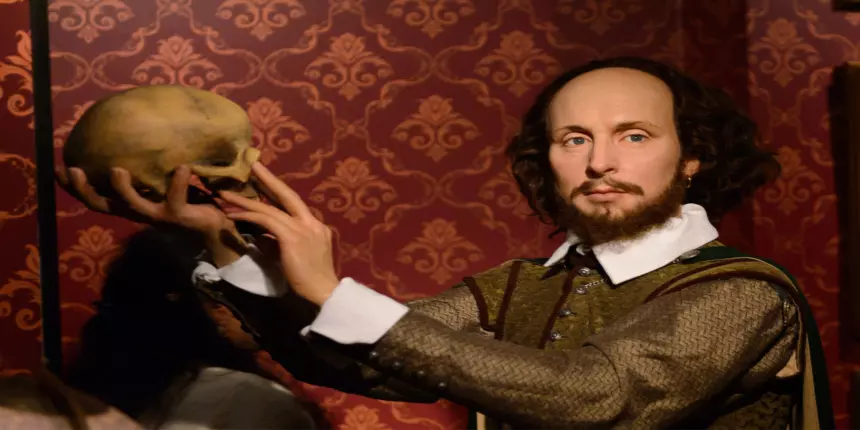
100 Words Essay on William Shakespeare
A legendary writer and actor William Shakespeare was born on the 23April in 1564 to Mary Shakespeare and John Shakespeare. He was known for his works in the field of English Literature. He produced many plays, sonnets, poems, and verses. He was also known as a well-known stage actor. He completed his schooling at Stratford Grammar School.
He wrote almost every genre of work. Some of his famous comedy genre works are: The Comedy of Errors, The Taming of the Shrew and The Two Gentlemen of Verona. Romeo Juliet, Julius Caesar, and Titus Andronicus are some of his famous tragic genre works. Richard II, Richard III, and Henry V are some of his historic genre plays. This shows that William Shakespeare was a multi-talented man.
William Shakespeare died on the 23 April, in the year 1616. Shakespeare died at the age of 52 in his hometown Warwickshire, England. He died physically but his existence through his extraordinary work will live forever in this world.
200 Words Essay on William Shakespeare
William Shakespeare is one of the renowned names of English playwrights. He was a multi-talented man who was a writer, poet and actor. He produced about one hundred and fifty-four sonnets, two narrative poems, thirty-eight plays and a few verses. He was born in Stratford-upon-Avon to a good family with good financial status on 23 April, 1564.
He started his career as an actor and then he started writing. He produced most of his works from 1589 to 1613. He wrote many famous plays like Romeo and Juliet, Julius Caesar , etc. In the year 1608, Shakespeare wrote some of his finest works of the tragic genre like Othello, Macbeth, and King Lear. These tragic genre works were some of the last works which he wrote in his last few years of life. Julius Caesar and Romeo and Juliet are some of his most famous plays which are played in schools and colleges on various occasions. He wrote vast, voluminous, unique and every different genre of plays.
Several of Shakespeare’s works have been translated into other languages. Several movies and plays are also played in his plays. His works are loved by everyone of every age group. He is one of the most precious playwrights of the times. He died in his hometown at the age of 52 on 23 of April, 1616.
500 Words Essay on William Shakespeare
One of the world's most famous playwrights and a dramatist William Shakespeare was known for his works in English literature. He was also known as Bard of Avon (England’s national poet) for his outstanding and incredible writing skills. He wrote amazing and unbelievable 38 plays, 154 sonnets, 2 narrative poems and a few verses in the English language.
Early life Of Shakespeare
He was born at Stratford-upon-Avon on 23 April in the year 1564. His father was a successful businessman and his mother was a landowner’s daughter. He started his schooling at the age of 7 at Stratford Grammar School. School timing was long and the teachers there were strict. His school was surrounded by woods and fields, which could have influenced his writing skills which are full of nature. Avon is a river which flows in his town, and he was nicknamed Bard of Avon on this basis. He married an eight years older woman Anne Hathaway at the age of 18. They had three kids Susanna, and the twins Judith and Hamnet.
Shakespeare’s Inspirational Career
After completing his education, he moved to London where he started his career as an actor. He became a very famous actor by 1592. It was here that his career started taking shape. He was a member of “The Lord Chamberlain’s Men” one of the very famous theatre companies in the city. By the year 1594, he had produced about six plays which were performed in the company. He played in many of the plays as an actor at various places.
He produced many famous plays like Romeo and Juliet, Merchant of Venice, Hamlet, Much Ado About Nothing, Henry V and many more. Julius Caesar was a tragic play he wrote in the last few years of his life. It was all about a bad omen that the king saw and it came true. In this play, the king is killed by his loyal and trustworthy people and friends. Romeo and Juliet are one of his other plays which were known for the beauty of the love Romeo and Juliet have for each other. All his plays give some morals to learn. His works were full of nature and he had written in almost every kind of genre. His works are known for unforgettable characters full of human qualities. In 1613, he took a break from acting and fully devoted himself to writing. And on 23 April, 1616 he died leaving this world with his incredible and irreplaceable works.
Shakespeare was a legend of English literature. His fantastic writing skills can take away anyone’s heart. His works are known for being character-centric, narrative-building, natural, realistic, and fictional and he has excellent writing skills. There is a saying that “People die but their words won’t” and it is true William Shakespeare, one of the greatest writers of all time will live forever through his words of writing and his works will always inspire and motivate us to do incredible things in our lives.
Explore Career Options (By Industry)
- Construction
- Entertainment
- Manufacturing
- Information Technology
Data Administrator
Database professionals use software to store and organise data such as financial information, and customer shipping records. Individuals who opt for a career as data administrators ensure that data is available for users and secured from unauthorised sales. DB administrators may work in various types of industries. It may involve computer systems design, service firms, insurance companies, banks and hospitals.
Bio Medical Engineer
The field of biomedical engineering opens up a universe of expert chances. An Individual in the biomedical engineering career path work in the field of engineering as well as medicine, in order to find out solutions to common problems of the two fields. The biomedical engineering job opportunities are to collaborate with doctors and researchers to develop medical systems, equipment, or devices that can solve clinical problems. Here we will be discussing jobs after biomedical engineering, how to get a job in biomedical engineering, biomedical engineering scope, and salary.
Ethical Hacker
A career as ethical hacker involves various challenges and provides lucrative opportunities in the digital era where every giant business and startup owns its cyberspace on the world wide web. Individuals in the ethical hacker career path try to find the vulnerabilities in the cyber system to get its authority. If he or she succeeds in it then he or she gets its illegal authority. Individuals in the ethical hacker career path then steal information or delete the file that could affect the business, functioning, or services of the organization.
GIS officer work on various GIS software to conduct a study and gather spatial and non-spatial information. GIS experts update the GIS data and maintain it. The databases include aerial or satellite imagery, latitudinal and longitudinal coordinates, and manually digitized images of maps. In a career as GIS expert, one is responsible for creating online and mobile maps.
Data Analyst
The invention of the database has given fresh breath to the people involved in the data analytics career path. Analysis refers to splitting up a whole into its individual components for individual analysis. Data analysis is a method through which raw data are processed and transformed into information that would be beneficial for user strategic thinking.
Data are collected and examined to respond to questions, evaluate hypotheses or contradict theories. It is a tool for analyzing, transforming, modeling, and arranging data with useful knowledge, to assist in decision-making and methods, encompassing various strategies, and is used in different fields of business, research, and social science.
Geothermal Engineer
Individuals who opt for a career as geothermal engineers are the professionals involved in the processing of geothermal energy. The responsibilities of geothermal engineers may vary depending on the workplace location. Those who work in fields design facilities to process and distribute geothermal energy. They oversee the functioning of machinery used in the field.
Database Architect
If you are intrigued by the programming world and are interested in developing communications networks then a career as database architect may be a good option for you. Data architect roles and responsibilities include building design models for data communication networks. Wide Area Networks (WANs), local area networks (LANs), and intranets are included in the database networks. It is expected that database architects will have in-depth knowledge of a company's business to develop a network to fulfil the requirements of the organisation. Stay tuned as we look at the larger picture and give you more information on what is db architecture, why you should pursue database architecture, what to expect from such a degree and what your job opportunities will be after graduation. Here, we will be discussing how to become a data architect. Students can visit NIT Trichy , IIT Kharagpur , JMI New Delhi .
Remote Sensing Technician
Individuals who opt for a career as a remote sensing technician possess unique personalities. Remote sensing analysts seem to be rational human beings, they are strong, independent, persistent, sincere, realistic and resourceful. Some of them are analytical as well, which means they are intelligent, introspective and inquisitive.
Remote sensing scientists use remote sensing technology to support scientists in fields such as community planning, flight planning or the management of natural resources. Analysing data collected from aircraft, satellites or ground-based platforms using statistical analysis software, image analysis software or Geographic Information Systems (GIS) is a significant part of their work. Do you want to learn how to become remote sensing technician? There's no need to be concerned; we've devised a simple remote sensing technician career path for you. Scroll through the pages and read.
Budget Analyst
Budget analysis, in a nutshell, entails thoroughly analyzing the details of a financial budget. The budget analysis aims to better understand and manage revenue. Budget analysts assist in the achievement of financial targets, the preservation of profitability, and the pursuit of long-term growth for a business. Budget analysts generally have a bachelor's degree in accounting, finance, economics, or a closely related field. Knowledge of Financial Management is of prime importance in this career.
Underwriter
An underwriter is a person who assesses and evaluates the risk of insurance in his or her field like mortgage, loan, health policy, investment, and so on and so forth. The underwriter career path does involve risks as analysing the risks means finding out if there is a way for the insurance underwriter jobs to recover the money from its clients. If the risk turns out to be too much for the company then in the future it is an underwriter who will be held accountable for it. Therefore, one must carry out his or her job with a lot of attention and diligence.
Finance Executive
Product manager.
A Product Manager is a professional responsible for product planning and marketing. He or she manages the product throughout the Product Life Cycle, gathering and prioritising the product. A product manager job description includes defining the product vision and working closely with team members of other departments to deliver winning products.
Operations Manager
Individuals in the operations manager jobs are responsible for ensuring the efficiency of each department to acquire its optimal goal. They plan the use of resources and distribution of materials. The operations manager's job description includes managing budgets, negotiating contracts, and performing administrative tasks.
Stock Analyst
Individuals who opt for a career as a stock analyst examine the company's investments makes decisions and keep track of financial securities. The nature of such investments will differ from one business to the next. Individuals in the stock analyst career use data mining to forecast a company's profits and revenues, advise clients on whether to buy or sell, participate in seminars, and discussing financial matters with executives and evaluate annual reports.
A Researcher is a professional who is responsible for collecting data and information by reviewing the literature and conducting experiments and surveys. He or she uses various methodological processes to provide accurate data and information that is utilised by academicians and other industry professionals. Here, we will discuss what is a researcher, the researcher's salary, types of researchers.
Welding Engineer
Welding Engineer Job Description: A Welding Engineer work involves managing welding projects and supervising welding teams. He or she is responsible for reviewing welding procedures, processes and documentation. A career as Welding Engineer involves conducting failure analyses and causes on welding issues.
Transportation Planner
A career as Transportation Planner requires technical application of science and technology in engineering, particularly the concepts, equipment and technologies involved in the production of products and services. In fields like land use, infrastructure review, ecological standards and street design, he or she considers issues of health, environment and performance. A Transportation Planner assigns resources for implementing and designing programmes. He or she is responsible for assessing needs, preparing plans and forecasts and compliance with regulations.
Environmental Engineer
Individuals who opt for a career as an environmental engineer are construction professionals who utilise the skills and knowledge of biology, soil science, chemistry and the concept of engineering to design and develop projects that serve as solutions to various environmental problems.
Safety Manager
A Safety Manager is a professional responsible for employee’s safety at work. He or she plans, implements and oversees the company’s employee safety. A Safety Manager ensures compliance and adherence to Occupational Health and Safety (OHS) guidelines.
Conservation Architect
A Conservation Architect is a professional responsible for conserving and restoring buildings or monuments having a historic value. He or she applies techniques to document and stabilise the object’s state without any further damage. A Conservation Architect restores the monuments and heritage buildings to bring them back to their original state.
Structural Engineer
A Structural Engineer designs buildings, bridges, and other related structures. He or she analyzes the structures and makes sure the structures are strong enough to be used by the people. A career as a Structural Engineer requires working in the construction process. It comes under the civil engineering discipline. A Structure Engineer creates structural models with the help of computer-aided design software.
Highway Engineer
Highway Engineer Job Description: A Highway Engineer is a civil engineer who specialises in planning and building thousands of miles of roads that support connectivity and allow transportation across the country. He or she ensures that traffic management schemes are effectively planned concerning economic sustainability and successful implementation.
Field Surveyor
Are you searching for a Field Surveyor Job Description? A Field Surveyor is a professional responsible for conducting field surveys for various places or geographical conditions. He or she collects the required data and information as per the instructions given by senior officials.
Orthotist and Prosthetist
Orthotists and Prosthetists are professionals who provide aid to patients with disabilities. They fix them to artificial limbs (prosthetics) and help them to regain stability. There are times when people lose their limbs in an accident. In some other occasions, they are born without a limb or orthopaedic impairment. Orthotists and prosthetists play a crucial role in their lives with fixing them to assistive devices and provide mobility.
Pathologist
A career in pathology in India is filled with several responsibilities as it is a medical branch and affects human lives. The demand for pathologists has been increasing over the past few years as people are getting more aware of different diseases. Not only that, but an increase in population and lifestyle changes have also contributed to the increase in a pathologist’s demand. The pathology careers provide an extremely huge number of opportunities and if you want to be a part of the medical field you can consider being a pathologist. If you want to know more about a career in pathology in India then continue reading this article.
Veterinary Doctor
Speech therapist, gynaecologist.
Gynaecology can be defined as the study of the female body. The job outlook for gynaecology is excellent since there is evergreen demand for one because of their responsibility of dealing with not only women’s health but also fertility and pregnancy issues. Although most women prefer to have a women obstetrician gynaecologist as their doctor, men also explore a career as a gynaecologist and there are ample amounts of male doctors in the field who are gynaecologists and aid women during delivery and childbirth.
Audiologist
The audiologist career involves audiology professionals who are responsible to treat hearing loss and proactively preventing the relevant damage. Individuals who opt for a career as an audiologist use various testing strategies with the aim to determine if someone has a normal sensitivity to sounds or not. After the identification of hearing loss, a hearing doctor is required to determine which sections of the hearing are affected, to what extent they are affected, and where the wound causing the hearing loss is found. As soon as the hearing loss is identified, the patients are provided with recommendations for interventions and rehabilitation such as hearing aids, cochlear implants, and appropriate medical referrals. While audiology is a branch of science that studies and researches hearing, balance, and related disorders.
An oncologist is a specialised doctor responsible for providing medical care to patients diagnosed with cancer. He or she uses several therapies to control the cancer and its effect on the human body such as chemotherapy, immunotherapy, radiation therapy and biopsy. An oncologist designs a treatment plan based on a pathology report after diagnosing the type of cancer and where it is spreading inside the body.
Are you searching for an ‘Anatomist job description’? An Anatomist is a research professional who applies the laws of biological science to determine the ability of bodies of various living organisms including animals and humans to regenerate the damaged or destroyed organs. If you want to know what does an anatomist do, then read the entire article, where we will answer all your questions.
For an individual who opts for a career as an actor, the primary responsibility is to completely speak to the character he or she is playing and to persuade the crowd that the character is genuine by connecting with them and bringing them into the story. This applies to significant roles and littler parts, as all roles join to make an effective creation. Here in this article, we will discuss how to become an actor in India, actor exams, actor salary in India, and actor jobs.
Individuals who opt for a career as acrobats create and direct original routines for themselves, in addition to developing interpretations of existing routines. The work of circus acrobats can be seen in a variety of performance settings, including circus, reality shows, sports events like the Olympics, movies and commercials. Individuals who opt for a career as acrobats must be prepared to face rejections and intermittent periods of work. The creativity of acrobats may extend to other aspects of the performance. For example, acrobats in the circus may work with gym trainers, celebrities or collaborate with other professionals to enhance such performance elements as costume and or maybe at the teaching end of the career.
Video Game Designer
Career as a video game designer is filled with excitement as well as responsibilities. A video game designer is someone who is involved in the process of creating a game from day one. He or she is responsible for fulfilling duties like designing the character of the game, the several levels involved, plot, art and similar other elements. Individuals who opt for a career as a video game designer may also write the codes for the game using different programming languages.
Depending on the video game designer job description and experience they may also have to lead a team and do the early testing of the game in order to suggest changes and find loopholes.
Radio Jockey
Radio Jockey is an exciting, promising career and a great challenge for music lovers. If you are really interested in a career as radio jockey, then it is very important for an RJ to have an automatic, fun, and friendly personality. If you want to get a job done in this field, a strong command of the language and a good voice are always good things. Apart from this, in order to be a good radio jockey, you will also listen to good radio jockeys so that you can understand their style and later make your own by practicing.
A career as radio jockey has a lot to offer to deserving candidates. If you want to know more about a career as radio jockey, and how to become a radio jockey then continue reading the article.
Choreographer
The word “choreography" actually comes from Greek words that mean “dance writing." Individuals who opt for a career as a choreographer create and direct original dances, in addition to developing interpretations of existing dances. A Choreographer dances and utilises his or her creativity in other aspects of dance performance. For example, he or she may work with the music director to select music or collaborate with other famous choreographers to enhance such performance elements as lighting, costume and set design.
Social Media Manager
A career as social media manager involves implementing the company’s or brand’s marketing plan across all social media channels. Social media managers help in building or improving a brand’s or a company’s website traffic, build brand awareness, create and implement marketing and brand strategy. Social media managers are key to important social communication as well.
Photographer
Photography is considered both a science and an art, an artistic means of expression in which the camera replaces the pen. In a career as a photographer, an individual is hired to capture the moments of public and private events, such as press conferences or weddings, or may also work inside a studio, where people go to get their picture clicked. Photography is divided into many streams each generating numerous career opportunities in photography. With the boom in advertising, media, and the fashion industry, photography has emerged as a lucrative and thrilling career option for many Indian youths.
An individual who is pursuing a career as a producer is responsible for managing the business aspects of production. They are involved in each aspect of production from its inception to deception. Famous movie producers review the script, recommend changes and visualise the story.
They are responsible for overseeing the finance involved in the project and distributing the film for broadcasting on various platforms. A career as a producer is quite fulfilling as well as exhaustive in terms of playing different roles in order for a production to be successful. Famous movie producers are responsible for hiring creative and technical personnel on contract basis.
Copy Writer
In a career as a copywriter, one has to consult with the client and understand the brief well. A career as a copywriter has a lot to offer to deserving candidates. Several new mediums of advertising are opening therefore making it a lucrative career choice. Students can pursue various copywriter courses such as Journalism , Advertising , Marketing Management . Here, we have discussed how to become a freelance copywriter, copywriter career path, how to become a copywriter in India, and copywriting career outlook.
In a career as a vlogger, one generally works for himself or herself. However, once an individual has gained viewership there are several brands and companies that approach them for paid collaboration. It is one of those fields where an individual can earn well while following his or her passion.
Ever since internet costs got reduced the viewership for these types of content has increased on a large scale. Therefore, a career as a vlogger has a lot to offer. If you want to know more about the Vlogger eligibility, roles and responsibilities then continue reading the article.
For publishing books, newspapers, magazines and digital material, editorial and commercial strategies are set by publishers. Individuals in publishing career paths make choices about the markets their businesses will reach and the type of content that their audience will be served. Individuals in book publisher careers collaborate with editorial staff, designers, authors, and freelance contributors who develop and manage the creation of content.
Careers in journalism are filled with excitement as well as responsibilities. One cannot afford to miss out on the details. As it is the small details that provide insights into a story. Depending on those insights a journalist goes about writing a news article. A journalism career can be stressful at times but if you are someone who is passionate about it then it is the right choice for you. If you want to know more about the media field and journalist career then continue reading this article.
Individuals in the editor career path is an unsung hero of the news industry who polishes the language of the news stories provided by stringers, reporters, copywriters and content writers and also news agencies. Individuals who opt for a career as an editor make it more persuasive, concise and clear for readers. In this article, we will discuss the details of the editor's career path such as how to become an editor in India, editor salary in India and editor skills and qualities.
Individuals who opt for a career as a reporter may often be at work on national holidays and festivities. He or she pitches various story ideas and covers news stories in risky situations. Students can pursue a BMC (Bachelor of Mass Communication) , B.M.M. (Bachelor of Mass Media) , or MAJMC (MA in Journalism and Mass Communication) to become a reporter. While we sit at home reporters travel to locations to collect information that carries a news value.
Corporate Executive
Are you searching for a Corporate Executive job description? A Corporate Executive role comes with administrative duties. He or she provides support to the leadership of the organisation. A Corporate Executive fulfils the business purpose and ensures its financial stability. In this article, we are going to discuss how to become corporate executive.
Multimedia Specialist
A multimedia specialist is a media professional who creates, audio, videos, graphic image files, computer animations for multimedia applications. He or she is responsible for planning, producing, and maintaining websites and applications.
Quality Controller
A quality controller plays a crucial role in an organisation. He or she is responsible for performing quality checks on manufactured products. He or she identifies the defects in a product and rejects the product.
A quality controller records detailed information about products with defects and sends it to the supervisor or plant manager to take necessary actions to improve the production process.
Production Manager
A QA Lead is in charge of the QA Team. The role of QA Lead comes with the responsibility of assessing services and products in order to determine that he or she meets the quality standards. He or she develops, implements and manages test plans.
Process Development Engineer
The Process Development Engineers design, implement, manufacture, mine, and other production systems using technical knowledge and expertise in the industry. They use computer modeling software to test technologies and machinery. An individual who is opting career as Process Development Engineer is responsible for developing cost-effective and efficient processes. They also monitor the production process and ensure it functions smoothly and efficiently.
AWS Solution Architect
An AWS Solution Architect is someone who specializes in developing and implementing cloud computing systems. He or she has a good understanding of the various aspects of cloud computing and can confidently deploy and manage their systems. He or she troubleshoots the issues and evaluates the risk from the third party.
Azure Administrator
An Azure Administrator is a professional responsible for implementing, monitoring, and maintaining Azure Solutions. He or she manages cloud infrastructure service instances and various cloud servers as well as sets up public and private cloud systems.
Computer Programmer
Careers in computer programming primarily refer to the systematic act of writing code and moreover include wider computer science areas. The word 'programmer' or 'coder' has entered into practice with the growing number of newly self-taught tech enthusiasts. Computer programming careers involve the use of designs created by software developers and engineers and transforming them into commands that can be implemented by computers. These commands result in regular usage of social media sites, word-processing applications and browsers.
Information Security Manager
Individuals in the information security manager career path involves in overseeing and controlling all aspects of computer security. The IT security manager job description includes planning and carrying out security measures to protect the business data and information from corruption, theft, unauthorised access, and deliberate attack
ITSM Manager
Automation test engineer.
An Automation Test Engineer job involves executing automated test scripts. He or she identifies the project’s problems and troubleshoots them. The role involves documenting the defect using management tools. He or she works with the application team in order to resolve any issues arising during the testing process.
Applications for Admissions are open.


Aakash iACST Scholarship Test 2024
Get up to 90% scholarship on NEET, JEE & Foundation courses

SAT® | CollegeBoard
Registeration closing on 19th Apr for SAT® | One Test-Many Universities | 90% discount on registrations fee | Free Practice | Multiple Attempts | no penalty for guessing

JEE Main Important Chemistry formulas
As per latest 2024 syllabus. Chemistry formulas, equations, & laws of class 11 & 12th chapters

Resonance Coaching
Enroll in Resonance Coaching for success in JEE/NEET exams

TOEFL ® Registrations 2024
Thinking of Studying Abroad? Think the TOEFL® test. Register now & Save 10% on English Proficiency Tests with Gift Cards

ALLEN JEE Exam Prep
Start your JEE preparation with ALLEN
Everything about Education
Latest updates, Exclusive Content, Webinars and more.
Download Careers360 App's
Regular exam updates, QnA, Predictors, College Applications & E-books now on your Mobile
Cetifications
We Appeared in
Home — Essay Samples — Literature — Writers — William Shakespeare
Essays on William Shakespeare
What makes a good william shakespeare essay topic.
When it comes to crafting an exceptional essay on the works of William Shakespeare, the choice of topic is paramount. The right topic can breathe life into your essay, making it captivating, unique, and unforgettable. Here are some innovative tips to help you brainstorm and select an essay topic that will mesmerize your readers:
- Research and Immerse Yourself: Begin by immersing yourself in the vast repertoire of William Shakespeare's works. Dive into his plays, poems, and sonnets. This deep exploration will provide you with invaluable insights into his themes, characters, and writing style.
- Personal Passion: Opt for a topic that ignites a genuine spark of interest within you. When you are truly passionate about the subject matter, it will shine through in your writing, captivating your readers and making your essay more compelling.
- Unveiling the Unexplored: Seek out uncharted territory and lesser-known aspects of Shakespeare's works. Instead of treading the well-worn path of common themes or characters, venture into the hidden gems that lie within his literature.
- Contemporary Connections: Explore the relevance of Shakespeare's works in today's society and connect them to modern-day issues. Examining the timeless themes and their impact on the present can render your essay thought-provoking and engaging.
- Characters and Relationships Under the Microscope: Shakespeare's characters are multifaceted and intricate. Choose a topic that allows you to analyze their motivations, relationships, or character development within his plays.
- Comparative Analysis: Engage in a comparative exploration of Shakespeare's works alongside other literary pieces, historical events, or even contemporary movies or plays. This fresh perspective will make your essay stand out from the crowd.
- Social and Cultural Context: Delve into the social and cultural milieu that shaped Shakespeare's plays. Discuss how his works were influenced by the Elizabethan era and how they mirror the society of that time.
- Unveiling Symbolism and Imagery: Shakespeare's works are a treasure trove of symbolism and vivid imagery. Select a topic that allows you to analyze and interpret these literary devices, offering profound insights into the text.
- Controversial Contemplations: Shakespeare fearlessly explored contentious themes such as power, love, and morality. Choose a topic that tackles these provocative issues, sparking a lively debate among your readers.
- Unconventional Interpretations: Present a fresh and unconventional interpretation of a particular play, scene, or character. Challenge conventional ideas and encourage critical thinking with your unique perspective.
Remember, a remarkable Shakespeare essay topic should be captivating, original, and thought-provoking. By considering these recommendations, you will be able to select a topic that will enrapture your readers and showcase your exceptional analytical skills.
Essay Topic Ideas for William Shakespeare
Prepare to be dazzled by these outstanding essay topics on William Shakespeare:
- The Empowerment of Women in Shakespeare's Tragedies
- Fate and Its Grip on Romeo and Juliet
- The Fine Line Between Madness and Sanity in Hamlet
- Love's Intricacies and Deception in Much Ado About Nothing
- Unraveling the Allure of Power and Ambition in Macbeth
- Exploring the Dark Depths of Evil in Othello
- Shakespeare's Brave Confrontation of Racism in The Merchant of Venice
- The Mighty Influence of Language and Wordplay in A Midsummer Night's Dream
- Revenge and Justice Collide in Titus Andronicus
- The Greek Mythology Odyssey within Shakespeare's Plays
- The Symbolic Tapestry of Nature in King Lear
- Gender Roles and Identity in Twelfth Night
- Time's Elusive Spell in The Tempest
- The Supernatural's Sinister Dance in Macbeth
- The Illusion of Appearance versus the Reality of Truth in Measure for Measure
- The Complexities of Love's Dominion in Antony and Cleopatra
- The Intricate Weaving of Politics in Julius Caesar
- Jealousy's Venomous Touch in Othello
- The Struggle between Duty and Desire in Hamlet
- A Profound Exploration of Human Nature in Troilus and Cressida
Provocative Questions for Your William Shakespeare Essay
Prepare to embark on an intellectual journey with these thought-provoking essay questions on William Shakespeare:
- How does Shakespeare challenge traditional gender roles in his plays?
- What is the significance of the supernatural elements in Macbeth?
- How does Shakespeare explore the theme of power and its corrupting influence in his tragedies?
- Analyze the portrayal of love and relationships in Shakespeare's comedies.
- To what extent does fate play a role in Romeo and Juliet, and are the characters responsible for their own destinies?
- Discuss the concept of madness and its impact on the characters in Hamlet.
- How does Shakespeare employ symbolism and imagery to convey his themes in The Tempest?
- Analyze the role of loyalty and betrayal in Julius Caesar.
- How does Othello's race affect the outcome of the play?
- Discuss the portrayal of revenge in Shakespeare's plays.
Creative William Shakespeare Essay Prompts
Ignite your creativity with these captivating essay prompts on William Shakespeare:
- Imagine you are a director staging a modern adaptation of one of Shakespeare's plays. How would you interpret the setting, costumes, and overall production to make it relevant to a contemporary audience?
- Write a heartfelt letter from one of Shakespeare's characters to another, expressing their deepest desires, fears, or regrets.
- Create a powerful monologue from the perspective of a minor character in any of Shakespeare's plays, unveiling their untold story or hidden emotions.
- Write a riveting dialogue between Shakespeare and a modern-day playwright, discussing the enduring appeal and relevance of his works.
- Imagine you are a literary critic tasked with analyzing a previously undiscovered Shakespearean sonnet. Interpret its meaning and discuss its significance within the context of his other works.
William Shakespeare Essay FAQ
Q: How should I begin my essay on William Shakespeare?
A: Commence with a captivating introduction that sets the stage for your essay and introduces your thesis statement. You can start with a compelling quote, an intriguing fact, or a thought-provoking question.
Q: Can I choose a lesser-known play by Shakespeare as my essay topic?
A: Absolutely! Exploring lesser-known plays can provide a fresh perspective, allowing you to delve into unexplored themes and characters. Just ensure that you provide enough context and background information for your readers.
Q: Should I include direct quotes from Shakespeare's works in my essay?
A: Including quotes can enhance your analysis and provide evidence to support your arguments. However, make sure to seamlessly integrate and analyze the quotes, rather than using them as mere filler.
Q: Can I incorporate modern examples or references in my essay on Shakespeare?
A: Yes, incorporating modern examples or references can help readers connect with the themes and relevance of Shakespeare's works. Just ensure that the examples are relevant and enhance your analysis, rather than overshadowing it.
Q: How can I make my Shakespeare essay stand out from others?
A: To make your essay shine, choose a unique and thought-provoking topic, offer fresh interpretations, and employ engaging language and writing style. Support your arguments with evidence and provide a well-structured analysis.
Remember, writing a Shakespeare essay is an opportunity to showcase your critical thinking and analytical skills. Embark on a thrilling journey through the world of Shakespeare and let your creativity illuminate your writing!
The Juxtaposition of Love and Hate in Romeo and Juliet
The influences of william shakespeare, made-to-order essay as fast as you need it.
Each essay is customized to cater to your unique preferences
+ experts online
Foreshadowing Setting in Macbeth
"romeo and juliet" by william shakespeare: fate and destiny, the biography of william shakespeare - plays & wife, analysis of the role of women in shakespeare's plays, let us write you an essay from scratch.
- 450+ experts on 30 subjects ready to help
- Custom essay delivered in as few as 3 hours
"As You Like It" and "A Midsummer Night"s Dream": Feminine Homoeroticism
Analysis of the theme of love and deceit in twelfth nigh, love and gender roles in romeo and juliet, how william shakespeare is still relevant today, get a personalized essay in under 3 hours.
Expert-written essays crafted with your exact needs in mind
Racial Discrimination and Sexism in William Shakespeare's Plays
Analysis of the use of literary devices in sonnet 18 by william shakespeare, analysis of the influence of english renaissance on william shakespeare, william shakespeare and his contribution to the renaissance, the role of fate in "romeo & juliet" by william shakespeare, the power of love in william shakespeare’s play the tempest, nature of man by william shakespeare's othello, william shakespeare and the importance of his literary works, why william shakespeare’s plays are no longer relevant, analysis of macbeth by william shakespeare, family theme in william shakespeare's works, catharsis in william shakespeare’s king lear, an analysis of william shakespeare’s othello, research on much ado about nothing, shakespeare is a creator of drama, analysis of the important aspects and measures covered in the shakespeare’s play "taming of the shrew", analysis of self-deluded characters in the tragedy of julius caesar, the role of the three witches in shakespearean play macbeth, love as a source of life shakespeare's sonnet 29, the structural and symbolic elements of mythology in many of shakespeare's plays.
April 1564, Stratford-upon-Avon, United Kingdom - April 23, 1616, Stratford-upon-Avon, United Kingdom
Playwright, Poet, Actor
English Renaissance
Romeo and Juliet, Hamlet, Macbeth, Othello, A Midsummer Night's Dream, Julius Caesar, The Tempest, Much Ado About Nothing,Twelfth Night, Macbeth, etc.
William Shakespeare, widely regarded as one of the greatest playwrights in history, possessed a unique and influential style of writing. His works demonstrate a mastery of language, poetic devices, and dramatic techniques that continue to captivate audiences centuries later. Shakespeare's writing style can be characterized by several distinctive features. Firstly, his use of language is rich and vibrant. He employed a vast vocabulary and crafted elaborate sentences, often employing complex wordplay and puns to create layers of meaning. Shakespeare's writing is renowned for its poetic beauty, rhythmic verse, and memorable lines that have become ingrained in the English language. Secondly, Shakespeare excelled in character development. His characters are multidimensional, with complex emotions and motivations. Through their soliloquies and dialogues, he explores the depths of human nature, delving into themes of love, jealousy, ambition, and morality. Each character's speech and mannerisms reflect their unique personality, contributing to the depth and realism of his plays. Lastly, Shakespeare's dramatic structure and storytelling techniques are unparalleled. He skillfully weaves together intricate plots, incorporating elements of comedy, tragedy, romance, and history. His plays feature dramatic tension, unexpected twists, and powerful climaxes that keep audiences engaged and emotionally invested.
One of Shakespeare's major contributions was his ability to delve into the depths of human emotions and the complexities of the human condition. Through his plays, he explored themes such as love, jealousy, ambition, revenge, and moral dilemmas, offering profound insights into the human psyche. His characters, like Hamlet, Macbeth, Juliet, and Othello, are iconic and have become archetypes in literature. Shakespeare's language and wordplay revolutionized English literature. He introduced new words, phrases, and expressions that have become an integral part of the English lexicon. His plays are a testament to his mastery of language, employing poetic techniques such as metaphors, similes, alliteration, and iambic pentameter to create rhythm, beauty, and depth in his writing. Moreover, Shakespeare's plays transcended the boundaries of time and place, showcasing universal themes and resonating with audiences across cultures and generations. His works continue to be performed and adapted in various forms, including stage productions, films, and literary adaptations, further solidifying his contribution to the world of literature.
Film Adaptations: Many of Shakespeare's plays have been adapted into films, bringing his stories to life on the silver screen. Notable examples include Franco Zeffirelli's "Romeo and Juliet" (1968), Kenneth Branagh's "Henry V" (1989), and Baz Luhrmann's modernized version of "Romeo + Juliet" (1996). TV Series and Episodes: Shakespeare's works have been featured in TV series and episodes, either through direct adaptations or by incorporating his themes and characters. For instance, the popular TV show "The Simpsons" has parodied Shakespeare in episodes like "A Midsummer's Nice Dream" and "Tales from the Public Domain." Shakespearean-Inspired Films: Some films draw inspiration from Shakespeare's works without being direct adaptations. Examples include "Shakespeare in Love" (1998), which explores the fictionalized romance between Shakespeare and a noblewoman, and "10 Things I Hate About You" (1999), a modern-day adaptation of "The Taming of the Shrew." Literary References: Shakespeare is often referenced in literature, showcasing his enduring influence. For instance, Aldous Huxley's dystopian novel "Brave New World" features characters who quote Shakespeare, and Margaret Atwood's "The Handmaid's Tale" includes a clandestine resistance group called "Mayday," derived from "May Day" in Shakespeare's "The Tempest."
1. Shakespeare is known for writing 39 plays, including tragedies like "Hamlet," comedies like "A Midsummer Night's Dream," and histories like "Henry V." 2. Shakespeare is credited with introducing over 1,700 words to the English language, including popular terms such as "eyeball," "fashionable," and "lonely." 3. Shakespeare's works have been translated into more than 80 languages, making him one of the most widely translated playwrights in history. 4. Shakespeare's plays continue to be performed and studied worldwide, with an estimated 17,000 performances of his works every year. 5. Despite his literary fame, little is known about Shakespeare's personal life. There are gaps and uncertainties surrounding his birthdate, education, and even the authorship of his works. 6. The Globe Theatre: Shakespeare's plays were performed at the famous Globe Theatre in London, which he co-owned. The reconstructed Globe Theatre stands in London today and offers modern audiences a glimpse into the world of Elizabethan theatre. 7. In addition to his plays, Shakespeare wrote 154 sonnets, which are celebrated for their lyrical beauty and exploration of themes such as love, time, and mortality.
William Shakespeare is an essential topic for essay writing due to his immense significance in the world of literature and his enduring influence on various aspects of human culture. Exploring Shakespeare's works provides a rich opportunity to delve into themes of love, tragedy, power, and human nature. His plays and sonnets continue to captivate readers and audiences with their universal themes and timeless relevance. Studying Shakespeare allows us to gain a deeper understanding of the English language itself, as he contributed numerous words and phrases that are still in use today. Additionally, his innovative use of language, poetic techniques, and complex characterizations showcase his unparalleled mastery as a playwright. Furthermore, Shakespeare's impact extends beyond literature. His works have been adapted into numerous films, theater productions, and other art forms, making him a cultural icon. His plays also provide a valuable lens through which to analyze historical and social contexts, as they reflect the values, beliefs, and conflicts of the Elizabethan era.
"All that glitters is not gold." "By the pricking of my thumbs, Something wicked this way comes. Open, locks, Whoever knocks!" In William Shakespeare's Hamlet, "to be, or not to be, that is the question." In the 21st century, "to code, or not to code, that is the challenge.
1. Shakespeare, W., Shakespeare, W., & Kaplan, M. L. (2002). The merchant of Venice (pp. 25-120). Palgrave Macmillan US. (https://link.springer.com/chapter/10.1007/978-1-137-07784-4_2) 2. Shakespeare, W. (2019). The tempest. In One-Hour Shakespeare (pp. 137-194). Routledge. (https://www.taylorfrancis.com/chapters/edit/10.4324/9780429262647-9/tempest-william-shakespeare) 3. Johnson, S. (2020). The Preface to The Plays of William Shakespeare (1765). In Samuel Johnson (pp. 423-462). Yale University Press. (https://www.degruyter.com/document/doi/10.12987/9780300258004-040/html?lang=de) 4. Denvir, J. (1986). William Shakespeare and the Jurisprudence of Comedy. Stan. L. Rev., 39, 825. (https://heinonline.org/HOL/LandingPage?handle=hein.journals/stflr39&div=38&id=&page=) 5. Demmen, J. (2020). Issues and challenges in compiling a corpus of early modern English plays for comparison with those of William Shakespeare. ICAME Journal, 44(1), 37-68. (https://sciendo.com/article/10.2478/icame-2020-0002) 6. Liu, X., Xu, A., Liu, Z., Guo, Y., & Akkiraju, R. (2019, May). Cognitive learning: How to become william shakespeare. In Extended Abstracts of the 2019 CHI Conference on Human Factors in Computing Systems (pp. 1-6). (https://dl.acm.org/doi/abs/10.1145/3290607.3312844) 7. Xu, W., Ritter, A., Dolan, W. B., Grishman, R., & Cherry, C. (2012, December). Paraphrasing for style. In Proceedings of COLING 2012 (pp. 2899-2914). (https://aclanthology.org/C12-1177.pdf) 8. Craig, H. (2012). George Chapman, John Davies of Hereford, William Shakespeare, and" A Lover's Complaint". Shakespeare Quarterly, 63(2), 147-174. (https://www.jstor.org/stable/41679745) 9. Zhao, Y., & Zobel, J. (2007, January). Searching with style: Authorship attribution in classic literature. In Proceedings of the thirtieth Australasian conference on Computer science-Volume 62 (pp. 59-68). (https://citeseerx.ist.psu.edu/document?repid=rep1&type=pdf&doi=3973ff27eb173412ce532c8684b950f4cd9b0dc8)
Relevant topics
- Thank You Ma Am
- The Story of An Hour
- The Crucible
- To Kill a Mockingbird
- The Alchemist
- Catcher in The Rye
- Their Eyes Were Watching God
- Bartleby The Scrivener
By clicking “Check Writers’ Offers”, you agree to our terms of service and privacy policy . We’ll occasionally send you promo and account related email
No need to pay just yet!
Bibliography
We use cookies to personalyze your web-site experience. By continuing we’ll assume you board with our cookie policy .
- Instructions Followed To The Letter
- Deadlines Met At Every Stage
- Unique And Plagiarism Free
- Essay Samples
- College Essay
- Writing Tools
- Writing guide

Descriptive Essay: The Life of William Shakespeare
The world’s most beloved and successful playwright and poet, William Shakespeare, was born in April 1564 and died in 1616 – and that’s were certainty about his life begins and ends. The life of William Shakespeare is as mysterious as it gets, frustrating the efforts of generations of literature critics to understand and interpret the playwright’s works in autobiographical terms.
Even William’s portrait was painted long after his death, so there is no clear picture of what the man looked like. Can his work therefore be interpreted in autobiographical terms?
Although we cannot pinpoint many significant events of Shakespeare’s actual life, the lives of actors and playwrights in Elizabethan England are to some extent known to us and we do know of some important events that occurred in William’s life.
By drawing on the available information from court and church documents applicable to William himself and documents, reports and comments made by contemporary writers of the Elizabethan age about the world William inhabited, it is possible to interpret at least some aspects of Shakespeare’s works in autobiographical terms.
Remarkably, Shakespeare captures the complete range of human conflict and emotion over the course of a 20-year career. Even if some of the plays and sonnets were written in collaboration with other writers, this is still a remarkable achievement that tells us much about the man himself. This is a writer who observes the world around him in minute detail, a man who takes an interest in everything going on in his surroundings.
This is a writer unlikely to shrink from using personal connections, family problems and personal tragedy in his work. His whole life and that of family and friends is likely to have been presented in Shakespeare’s plays.
Documented events in his life, such as the birth of his twin children Hamnet and Judith on February 2, 1585 and Hamnet’s subsequent death some 11 years later serve to explain Shakespeare’s veritable obsession with the theme of “twins”.
The death of 11-year-old Hamnet must have been a traumatic event to which the playwright’s mind returned again and again. “Twins” are in peril in many of his plays – and even where young people are not actual twins, they pretend to be in Shakespeare’s plays.
Shakespeare was 18 and his wife Anne was 26, when they married. Seen in terms of a much older, more experienced woman having great influence and power over a younger, less experienced man, the play “Macbeth” suddenly becomes far more accessible to a modern audience.
Few dates and facts pertaining to Shakespeare’s life are available. There are his early years, such as his education, and seven years after the birth of his twins for example, which are a total mystery. However, those events that are known have clearly had a profound impact on Shakespeare and cannot be disregarded when interpreting his works.
In the absence of autobiographical notes from the author himself any literary assessment of his work must draw on the few facts available through secondary sources. By concentrating on the big events in his life – births, marriages, deaths, change of location and profession – it is possible to draw conclusions, based on psychology, that assist to explain Shakespeare’s works.

Follow Us on Social Media
Get more free essays

Most useful resources for students:
- Free Essays Download
- Writing Tools List
- Proofreading Services
- Universities Rating
Contributors Bio

Find more useful services for students
Free plagiarism check, professional editing, online tutoring, free grammar check.
A Timeline of William Shakespeare's Life
Major Life Events That Shaped The Bard's Literary Career
- Shakespeare's Life and World
- Best Sellers
- Classic Literature
- Plays & Drama
- Short Stories
- Children's Books
- M.A., Theater Studies, Warwick University
- B.A., Drama and English, DeMontfort University
This timeline of the legendary William Shakespeare reveals that his plays and sonnets cannot be separated. Although he was undoubtedly a genius, he was also a product of his time . Follow along and piece together both the historical and personal events that shaped the world's most influential dramatist and poet.
1564: Shakespeare Born
The life of William Shakespeare begins in April 1564 in Stratford-upon-Avon, England when he was born into a prosperous family (his father was a glove maker). Learn more about Shakespeare’s birth and early childhood, and discover the house in which he was born .
1571-1578: Schooling
Thanks to the social standing of William Shakespeare's father, he managed to gain a place at King Edward IV Grammar School in Stratford-upon-Avon. He was schooled there between the ages of 7 and 14, where he would have been introduced to the classic texts that later informed his playwriting.
1582: Married Anne Hathaway
A shotgun marriage to ensure that their first child was not born out of wedlock sees the young William Shakespeare married to Anne Hathaway , daughter of a wealthy local farmer. The couple had three children together.
1585-1592: The Shakespeare Lost Years
The life of William Shakespeare disappears from the history books for several years. This period, now known as the Lost Years , has been the subject of much speculation. Whatever happened to William in this period formed the foundations for his subsequent career and by 1592 he had established himself in London and was making a living from the stage.
1594: 'Romeo and Juliet'
With " Romeo and Juliet ", Shakespeare really makes his name as a London playwright. The play was as popular then as it is today and was regularly played at The Theatre, the predecessor to the Globe Theatre. All of Shakespeare’s early work was produced here.
1598: Shakespeare’s Globe Theatre Erected
In 1598, the timbers and materials for Shakespeare’s Globe Theatre were stolen and floated across the River Thames after a dispute over the lease of The Theatre became impossible to resolve. From the stolen materials of The Theatre, the now famous Shakespeare’s Globe Theatre was erected.
1600: 'Hamlet'
"Hamlet" is often described as “ the greatest play ever written ” -- remarkable when you think it’s first public production was in 1600! " Hamlet " may have been written while Shakespeare was coming to terms with the devastating news that his only son, Hamnet, had died at the young age of 11.
1603: Elizabeth I Dies
Shakespeare was known to Elizabeth I and had his plays had been performed to her on many occasions. She ruled during England’s so-called, “Golden Age”, a period in which artists and writers flourished. Her reign was politically unstable because she adopted Protestantism -- generating conflict with the Pope, Spain and her own Catholic citizens. Shakespeare, with his Catholic roots, drew upon this in his plays.
1605: The Gunpowder Plot
There is evidence to suggest that Shakespeare was a “secret” Catholic , so he may have been disappointed that the Gunpowder Plot of 1605 failed. It was a Catholic attempt to derail King James I and Protestant England -- and there is evidence that the plot was hatched in Clopton, now a suburb of Stratford-upon-Avon.
1616: Shakespeare Dies
After retiring to Stratford-upon-Avon in around 1610, Shakespeare died on his 52nd birthday. By the end of his life, Shakespeare had certainly done well for himself and owned New Place , the largest house in Stratford. Although we have no record of the cause of death, there are a few theories .
1616: Shakespeare Buried
You can still visit Shakespeare’s grave today -- and read the curse written upon his tomb.
- Biography of William Shakespeare, History's Most Famous Playwright
- Facts About Shakespeare
- William Shakespeare's Family
- Fun and Creative Ways to Celebrate Shakespeare's Birthday
- Biography of Anne Hathaway, Shakespeare's Wife
- Shakespeare Authorship Debate
- How Did William Shakespeare Die?
- Cervantes and Shakespeare: What They Had in Common (and Didn’t)
- William Shakespeare's Most Famous Plays
- Shakespeare's Brothers and Sisters
- Was Shakespeare Gay?
- What Types of Plays Did Shakespeare Write?
- A Complete List of the Tragedies of William Shakespeare
- Why Is William Shakespeare so Famous?
- The Best Shakespeare Plays for High School
- Shakespeare for Kids
The Life and Work of William Shakespeare: His Contribution to the Contemporary Theater Research Paper
Though his active dates now approach nearly five hundred years in the past, William Shakespeare remains one of the most prominent playwrights in the world. Countless festivals, theater training institutes, and theatrical seasons continue to produce William Shakespeare’s major works for the theater year after year.
In addition, the plays and sonnets of William Shakespeare continue to set the standard for the study of the English language in its dramatic context in institutes of higher learning and performance training. The ability of one playwright to sustain such popularity over centuries is equaled only by that of the Greek playwrights such as Sophocles and Aeschylus.
Truly, the impact of this one dramatist on the modern theater is staggering in its reach and tenacity. The following essay seeks to investigate the contribution of William Shakespeare’s work to contemporary theater, using the tragedy of Othello and Macbeth as its main sources. In addition, this paper will point to the impact of William Shakespeare’s Sonnet 18 on the study of literature.
The theater that existed during the time when William Shakespeare lived and created his plays was qualitatively different than the modern theater. One of the main distinctions was the fact that men played all the roles, including those of the women.
In William Shakespeare’s time, it was deemed vulgar for women to perform. In fact, for many years the term actress was little more than a euphemism for prostitute (Pollard 13). Many members of polite society viewed the theater as tawdry entertainment for the masses, rife with vice and women of loose moral character, and a hotbed of lewd and lascivious behavior.
Indeed, during Shakespeare’s time, critics warned that the plays “take advantage of their verbal power and aesthetic pleasure in order to seduce viewers in vice” (Pollard 20). Women in particular were cautioned about the “sexual depravity of plays and the threats theatergoing poses to chastity, painting a lurid picture of a world of inescapable erotic temptations” (Pollard 20).
Despite these puritanical limitations, William Shakespeare created some of the most compelling female characters of the theater – full-blooded, three dimensional female characters such as Portia and Desdemona. Therefore, the impact of his works on the contemporary theater exists largely in the contribution his female characters made to cultural liberation of women beyond their roles.
The most obvious example is Lady Macbeth. In contemporary theater, Lady Macbeth remains one of the most fascinating and complex female characters of the theatrical canon – an unabashedly power hungry, ambitious female that set the context for women to be viewed as having individual desire and individual will related to power that not only transcended their commitment to their husbands but also their fear of social reprisal.
Lady Macbeth’s manipulation of her husband is one of the earliest examples of this, and her machinations and viciousness are surpassed only by those of Clytemnestra.
Shakespeare and his plays contribute to the modern theater by means of the influential formation of story, a great deal of plot twists, and gripping and complicated story arcs in which intertwined characters created love triangles, murder plots, and revenge schemes.
In addition, the modern theater still looks to William Shakespeare’s plays as the role model of poetic wording, the eloquent expression of the inner thoughts and motivations of characters, and unique, forceful language.
The tragedy of Othello belongs to the latter period of William Shakespeare’s plays, during which the plays ceased to be imitative and took on a uniqueness and richness equaled only by their darkness. If the earlier pieces of William Shakespeare’s writing were more humorous, the latter plays became more significantly more pessimistic (Kiefer 109).
The latter period of William Shakespeare’s works is populated by deeply personal, depressive perceptions of power, family, and love. Thus, the mood on the stage changed as well. The problems of death, jealousy, infidelity, and betrayal rampant in these latter tragedies, particularly Othello , revealed a dark side of the playwright.
William Shakespeare was one of the first playwrights to genuinely move his audience to tears. Remembering his tragedies, such as Romeo and Juliet or Othello , it is possible to state that Shakespeare made the characters alive, added dramatic plotting, realistic human situations, and encouraged the audience to not simply watch the story but to feel it.
Barber and Greenblatt say that William Shakespeare managed to present and transform plot materials as well as he could borrow “plot involved negative behavior on the basis of romantic absolutes which was not changed” (8).
Othello stands apart from the other tragedies on account of its social issue theme – one of the earliest treatments of racism in the theater. This is the drama which makes people excited with the feelings and deep love, then, the audience is worried because of betrayal and distrust and finally, people are shocked and despaired with the final scene of the play.
The plot and the genre are important as watching the play people should understand what they are to wait for, but the performer should still impress them with the stream of emotions they are unable to hide. Similarly, in Othello , a new treatment of both character and character relationships on stage exists.
As Bradbook explains, Othello’s “function of reason itself is destroyed when he loses faith in Desdemona” (178). Iago’s plot reveals the essential insecurity and fragility of the Moor, and as Bradbook notes, the murder of Desdemona heralds a “new concept of identity” (178).
In essence, when Othello murders his wife, he murders himself. Since he and Desdemona close to marry against the social norms of the time, they “become utterly dependent on each other. They live in an enclosed universe of two, and the price of their free choice is vulnerability” (Bradbook 178).
As Desdemona admits, “That I did love the Moor to live with him, / My downright violence and storm of fortunes / May trumpet to the world” (Shakespeare 26). Thus, the devastation wreaked by Iago pales in comparison to the destruction of the core sense of self witnessed in the character of Othello.
The play contributes a deep and painful study of the weakness of the lone, defiant personality amid overwhelming social censure, a theme that has been echoed many times since in contemporary theater from Samuel Beckett to Sarah Kane.
The language, expressions and words used in William Shakespeare’s plays impacted the theater development in the past and contributed to the contemporary development of the sphere. Many scholars agree that the choice of the words and word combinations in William Shakespeare’s sonnets also provide the culture of communication that continues to influence generations.
Considering the sonnets William Shakespeare wrote, specifically Sonnet 18 , this works “affirms the value of poetry itself and [William Shakespeare’s] own ability to write poetry which will last and which will convey the beauty of his lover to future generations” (Woolway 2).
Sonnet 18 reveals the powerful and impressive tone and language choice. “Shall I compare thee to a summer’s day? / Thou art more lovely and more temperate:/ Rough winds do shake the darling buds of May, / And summer’s lease hath all too short a date” (Shakespeare and Atkins 68).
In addition, the sonnet points to feeling of love expressed simply and honestly, outside of the confines of courtly love prevalent at that time. Sonnet 18 is “both idealistic and yet familiar. The poet is speaking to someone with whom he feels comfortable and is clearly intimate… This is not the distant woman of some Petrarchan love poems” (Woolway 2).
The carefully selected words in Sonnet 18 locate the reader in a frame of mind. Not only does the reader feel the melody of phrases and enjoy them, they live them in their romantic relationships. Sonnet 18 is an example of a piece of literature that perfectly personifies the feeling of love, which may explain why it continues to be quoted regularly, nearly five hundred years after it was written.
The contribution that William Shakespeare made to contemporary theater therefore spans multiple areas. In addition, the power and immediacy of feelings and emotions reflected in William Shakespeare’s works on stage were some of the earliest honest portrayals of pain, love and vengeance.
The playwright opened up the treatment of character, revealed the power of language, and dramatized difficult human themes. Much of the contemporary theater remains rooted in the character, plot and thematic innovation that William Shakespeare created.
Works Cited
Barber, C. L. and Stephen Greenblatt. Shakespeare’s Festive Comedy: A Study of Dramatic Form and Its Relation to Social Custom . Princeton: Princeton University Press, 2011. Print.
Bradbook, Muriel Clara. Shakespeare: The Poet in his World. London: Routledge, 2005. Print.
Kiefer, Frederick. Shakespeare’s Visual Theatre: Staging the Personified Characters . Cambridge: Cambridge University Press, 2003. Print.
Pollard, Tanya. Shakespeare’s Theater: A Sourcebook . New York: Wiley-Blackwell, 2004. Print.
Shakespeare, William and Carl D. Atkins. Shakespeare’s Sonnets: With Three Hundred Years of Commentary . New York: Associated University Press, 2007. Print.
Shakespeare, William. Othello . New York: Cricket House Books LLC, 2010. Print.
Woolway, Joanne. “An Overview of Sonnet 18.” Poetry for Students . Detroit: Gale, 2001. 1-2. Print.
- Play’s Plot Explored
- Act 1 Scene 1
- Act 1 Scene 2
- Act 1 Scene 3
- Act 2 Scenes 1-2
- Act 2 Scene 3
- Act 3 Scenes 1-2
- Act 3 Scene 3
- Act 3 Scene 4
- Act 4 Scene 1
- Act 4 Scene 2
- Act 4 Scene 3
- Act 5 Scene 1
- Act 5 Scene 2
- Characters Analysis
- Important Quotes
- Essay Samples
- Topics for Essay
- William Shakespeare
- Chicago (A-D)
- Chicago (N-B)
IvyPanda. (2023, December 11). The Life and Work of William Shakespeare: His Contribution to the Contemporary Theater. https://ivypanda.com/essays/the-life-and-work-of-william-shakespeare-his-contribution-to-the-contemporary-theater/
"The Life and Work of William Shakespeare: His Contribution to the Contemporary Theater." IvyPanda , 11 Dec. 2023, ivypanda.com/essays/the-life-and-work-of-william-shakespeare-his-contribution-to-the-contemporary-theater/.
IvyPanda . (2023) 'The Life and Work of William Shakespeare: His Contribution to the Contemporary Theater'. 11 December.
IvyPanda . 2023. "The Life and Work of William Shakespeare: His Contribution to the Contemporary Theater." December 11, 2023. https://ivypanda.com/essays/the-life-and-work-of-william-shakespeare-his-contribution-to-the-contemporary-theater/.
1. IvyPanda . "The Life and Work of William Shakespeare: His Contribution to the Contemporary Theater." December 11, 2023. https://ivypanda.com/essays/the-life-and-work-of-william-shakespeare-his-contribution-to-the-contemporary-theater/.
Bibliography
IvyPanda . "The Life and Work of William Shakespeare: His Contribution to the Contemporary Theater." December 11, 2023. https://ivypanda.com/essays/the-life-and-work-of-william-shakespeare-his-contribution-to-the-contemporary-theater/.
- Othello and Desdemona in "Othello" by Shakespeare
- Othello as the Outsider
- The Tragedy of Othello
- Shakespeare and His View on Kingship: Macbeth, King Lear and Othello
- Shakespeare's Tragedy of Macbeth
- Macbeth: An Analysis of the Play by Shakespeare
- "Othello" by William Shakespeare: Summary and Analysis
- Character Analysis of "Macbeth" by William Shakespeare
- Concept of Power in Shakespeare’s “Macbeth”
- The Story of Macbeth by W. Sheakspeare: Relationship and Strengths Between Macbeth and His Wife
- Performing Arts Field: Past, Present, and Future
- The Movie Adaptation of the "Othello" by William Shakespeare
- Movie and Drama. A Few Good Men
- The Nunsense story by Dan Goggin
- Othello and Desdemona: Emotional Strangers
How Did Shakespeare Die? What the Few Intriguing Clues Tell Us
William Shakespeare’s will and contemporary accounts provide tantalizing hints about what led to the playwright’s demise four centuries ago.
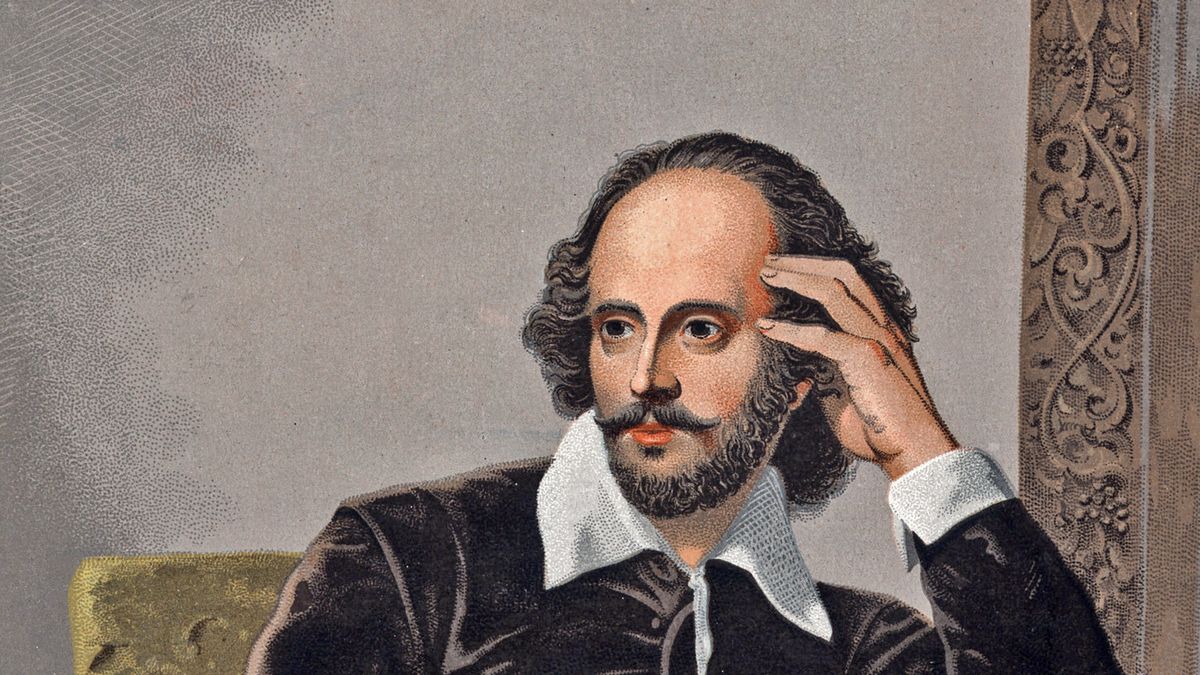
We may earn commission from links on this page, but we only recommend products we back.
Or, at least the story of what might have happened. Much like fellow literary great Edgar Allan Poe more than 200 years later later, Shakespeare’s final days are shrouded by uncertainty.
With little in the way of official documentation to help them, historians have had to rely on hints from Shakespeare’s will and the accounts of his 17 th century contemporaries to piece together the mystery. Here’s a look at what they’ve been able to determine so far about how Shakespeare died and why the rest remains so enigmatic.
Shakespeare’s cause of death wasn’t recorded
Very few specifics of Shakespeare’s 1616 death are certain. We do know his writing career had slowed by this time—his last known play, The Two Noble Kinsmen , was written two to three years prior—and he had returned to his childhood home of Stratford-upon-Avon. It’s traditionally believed he died on April 23, the same day as his presumed birthday in 1564, but some scholars contend this coincidental circumstance is a myth. His precise birth and death dates are unknown, but we at least know he died before April 25, 1616, when church records show he was interred.
Although deaths were recorded at the time, causes of death weren’t . The exceptions were plague fatalities, as it would have been vitally important to track the spread of the disease. With no such reference known for Shakespeare, we can most likely rule that out.
Perhaps most frustrating for researchers is that Shakespeare’s son-in-law John Hall was a well-known physician who left extensive records about his patients. That included Shakespeare’s eldest daughter, Susanna, who was also Hall’s wife. However, he makes no mention of treating the great playwright.
Drinking and disease emerged as theories
One particular tale about Shakespeare’s demise has persisted for hundreds of years. About 50 years after his death, a story began circulating that Shakespeare died after a night of heavy drinking with fellow writers Ben Jonson and Michael Drayton. According to Stanley Wells , an emeritus professor of Shakespeare studies at the University of Birmingham, the London-based Jonson wrote a flattering tribute to Shakespeare in the First Folio, the original collection of Shakespeare’s plays that was published in 1623. Drayton spent much of his time only 1 mile away from Stratford at Clifford Chambers and was a frequent visitor to the neighboring city.
While there is a degree of feasibility to the story given Jonson’s acquaintance and Drayton’s proximity to the famed playwright, it’s much more likely that Shakespeare would have suffered a hangover from such merriment as opposed to a deadly infection that cost him his life.
A more logical hypothesis is that he suffered from some disease other than the plague. According to the Shakespeare Birthplace Trust , typhus fever was particularly common at the time, and Shakespeare lived near a water source that could have helped the malady spread.
But given the lack of records, these speculative stories will continue to remain exactly that.
Shakespeare left intriguing clues in his will
Just weeks prior to his death, Shakespeare updated his will on March 25, 1616. In the document , the Bard described himself as “in perfect health & memory, God be praised.” As it turns out, the will was a revised version of a draft completed earlier that year in January. The Folger Shakespeare Library notes that some scholars believe this was done to reflect the change in marital status of his daughter Judith. She had wed Thomas Quiney on February 10.
Such a quick change could suggest Shakespeare was dealing with some form of long-term illness—or it could mean nothing at all. Similar to today, preparing for death and organizing one’s personal affairs were common social conventions of the era. Still, Shakespeare’s three signatures on the document were made with apparently shaky pen strokes, suggesting he might have been sick and might have struggled to hold the instrument.
Shakespeare left the bulk of his possessions to his daughter Susanna. More curiously, he made little mention of his wife, Anne Hathaway —only bequeathing her his “second best bed with the furniture.” Some experts have surmised this was a deliberate slight and that their relationship had soured. But there’s little evidence to suggest this, and Shakespeare might have meant “second best” in the literal sense to ensure Hathaway would receive the correct inheritance.
Shakespeare’s remains hold their own mystery
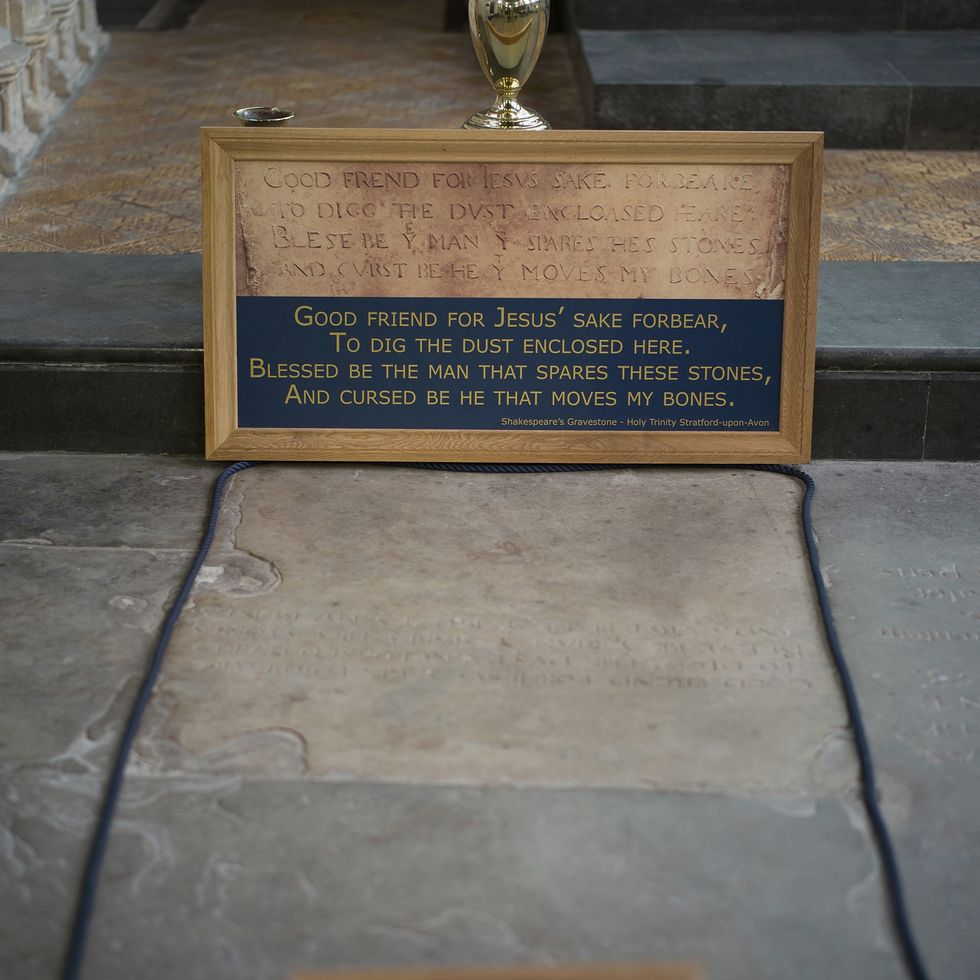
However Shakespeare died, we know his grave is located at the Holy Trinity Church, Stratford-upon-Avon. Yet, what happened to his remains is the subject of even more speculation.
In March 2016, researcher Kevin Colls from the Center of Archaeology at Staffordshire University revealed he had uncovered evidence using radar technology that Shakespeare’s skull is likely missing from his grave. “These results will undoubtedly spark discussion, scholarly debate and controversial theories for years to come,” Colls said at the time. “Even now, thinking of the findings sends shivers down my spine.”
One longstanding tale posited that Shakespeare’s head was actually inside a sealed crypt at another church 15 miles away in Worcestershire. But Colls and his team debunked that story, determining those remains belonged to a woman who died in her 70s.
Another theory, according to an 1879 Argosy magazine article , is that a local doctor named Frank Chambers robbed Shakespeare’s grave in 1794. According to Colls’ research, a writer named Horace Walpole supposedly offered a £300 reward to anyone who could bring him the skull of Shakespeare.
No matter the location, or locations, where Shakespeare now rests, the uncertainty only adds to the mystique of his final days and legacy.
Tyler Piccotti first joined the Biography.com staff as an Associate News Editor in February 2023, and before that worked almost eight years as a newspaper reporter and copy editor. He is a graduate of Syracuse University. When he's not writing and researching his next story, you can find him at the nearest amusement park, catching the latest movie, or cheering on his favorite sports teams.
Playwrights
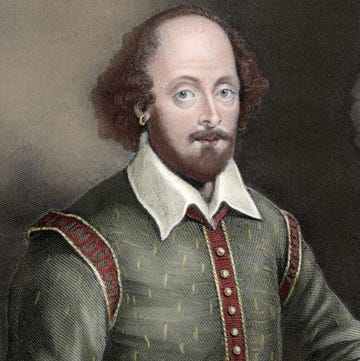
William Shakespeare
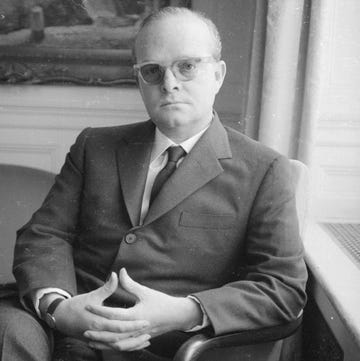
Truman Capote
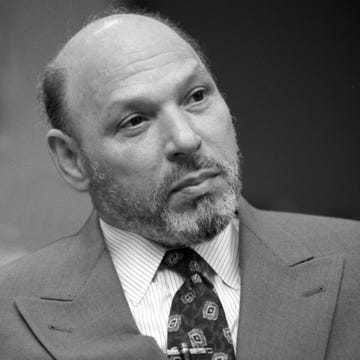
August Wilson
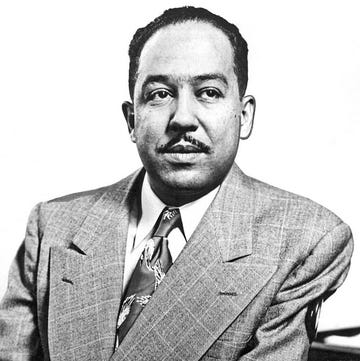
Langston Hughes
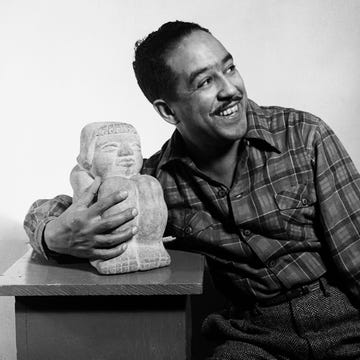
7 Facts About Literary Icon Langston Hughes
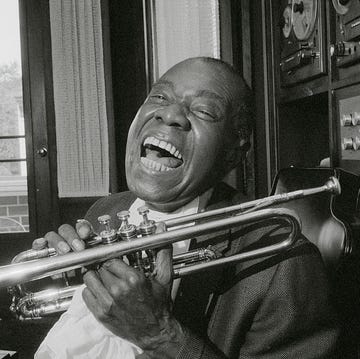
11 Notable Artists from the Harlem Renaissance
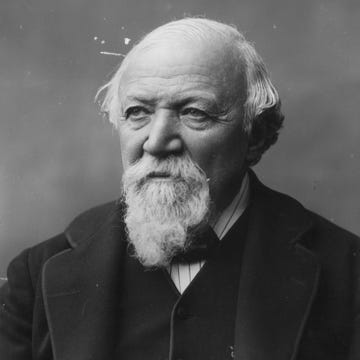
Robert Browning
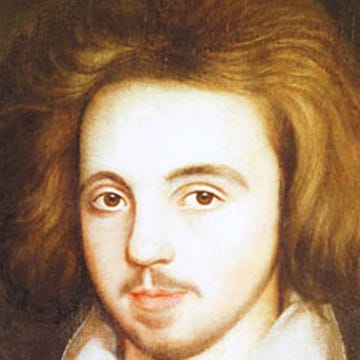
Christopher Marlowe
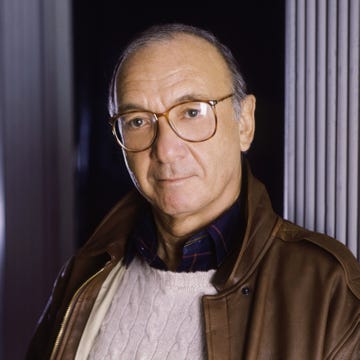
Eugene O'Neill
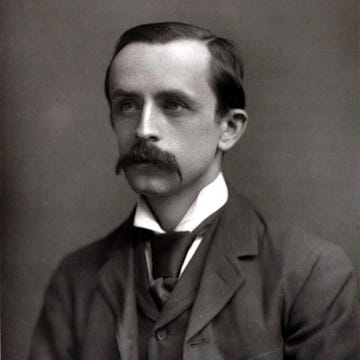
J.M. Barrie
- International edition
- Australia edition
- Europe edition
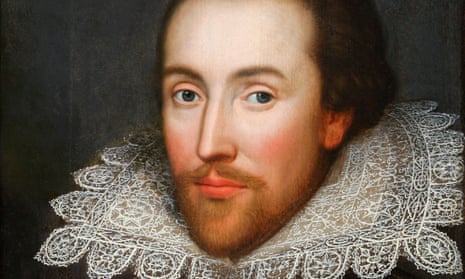
Shakespeare played jealous husband in 1598 Ben Jonson drama, scholar’s analysis finds
Exclusive: lecturer finds ‘striking similarities’ between lines in Jonson’s Every Man in His Humour and later Shakespeare works
He was an actor, as well as the greatest dramatist of all time, but no one has been able to name with certainty a single role that William Shakespeare performed himself.
Now a leading scholar has concluded from linguistic analysis that Shakespeare played an obsessively jealous husband in a 1598 drama by fellow playwright Ben Jonson .
Dr Darren Freebury-Jones, a lecturer in Shakespeare studies at the Shakespeare Birthplace Trust in Stratford-upon-Avon, has discovered “striking similarities” between phrases recited by Thorello in Every Man in His Humour and those in Shakespeare’s Othello, Hamlet and Twelfth Night – all written between 1600 and 1603.
He told the Guardian: “What I’ve found are some really interesting connections in terms of language, which suggest that Shakespeare was, perhaps unconsciously, remembering his own lines.”
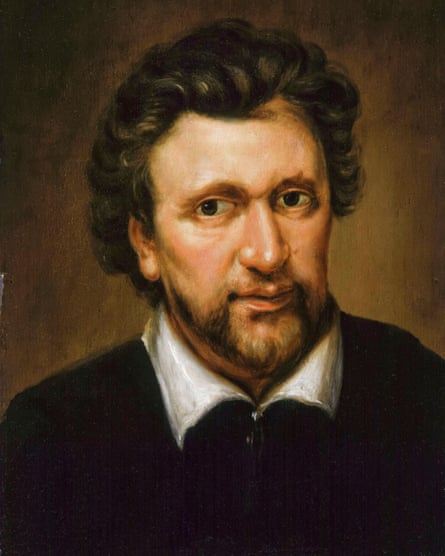
Elizabethan actors generally did not have copies of an entire play. Instead, their scripts were limited to their particular lines and their cues – just the last few words of preceding speeches.
Freebury-Jones said: “Players like Shakespeare would therefore need to be alert during performance, relying heavily on their aural understanding. So there was a real emphasis on listening during the period …
“The grammatical patterning and likenesses of thought between his lines and those of Thorello – renamed Kitely in Jonson’s revision – suggest that Shakespeare was intimately familiar with that role. But Shakespeare, being a genius, takes another dramatist’s feathers and transforms them into a peacock.”
Singling out examples, Freebury-Jones said: “In Jonson’s play, you’ve got Bianca, unfortunate wife of the jealous Thorello, who suspects she’s having an affair. She says: ‘For God’s sake, sweetheart, come in out of the air,’ to which Thorello responds with an aside: ‘How simple and how subtle are her answers?’
“In Hamlet, Polonius asks: ‘Will you walk out of the air, my lord?’, to which Hamlet responds: ‘Into my grave.’ Polonius says: ‘Indeed, that is out o’th’ air.’ He then offers an aside: ‘How pregnant sometimes his replies are.’ The corresponding structures and similarities in context are striking. Is this a case of Shakespeare remembering one of his cue-lines and an aside?”
He added: “Shakespeare seems to have recalled another of Thorello’s asides: ‘Spite of the devil, how they sting my heart,’ for Maria’s speech in Twelfth Night: ‘La you, an you speak ill of the devil, how he takes it at heart.’
“The grammatical structure is very similar and the unique word string, ‘of the devil how’, embraces the noun ‘heart’. Are we witnessing Shakespeare’s recall of lines he delivered on stage here?
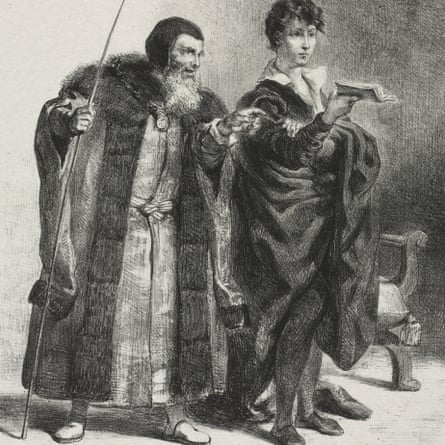
“Shakespeare also remembered Thorello’s line: ‘They would give out, because my wife is fair,’ when he depicted Othello’s destructive jealousy: ‘’Tis not to make me jealous / To say my wife is fair.’ Shakespeare inverts Thorello’s comic jealousy in his similarly named tragic protagonist Othello.”
Freebury-Jones found that other comparative phrases were “nowhere near as contextually interesting as those shared with Thorello”.
He observed that scholars had not been certain of any particular roles that Shakespeare took as an actor: “There’s oral traditions connecting him to the role of the ghost of Hamlet’s father and an old man named Adam in As You Like It.
“We know he acted in his own plays because the 1623 First Folio tells us, but it does not confirm any specific role he took.
“We also know he acted in two plays by Jonson, as a cast list printed in the 1616 Jonson Folio shows that Shakespeare was one of the principal players in Every Man in His Humour and that he was also listed among the principal tragedians in Sejanus [His Fall]. But again the documentary evidence does not specify roles.”
He said: “I can’t say that Shakespeare definitely played Thorello, but this is new evidence. No one’s ever discovered it before. I think it makes an interesting, quite compelling case.
“It’s great to bring attention to Shakespeare as an actor, as well as a playwright. Acting was absolutely crucial to his literary career.”
His discoveries will feature in his forthcoming book, titled Shakespeare’s Borrowed Feathers : How Early Modern Playwrights Shaped the World’s Greatest Writer, to be published by Manchester University Press in October. It will explore Shakespeare’s relationships with other playwrights, their influences and collaborations.
The research involved an electronic database called “Collocations and N-grams”, which compares the texts of more than 500 plays dating from 1552 to 1657, showing whether particular phrases are rare or unique.
Freebury-Jones established that “out of the air … how” is, for example, unique to Jonson and Shakespeare in that database.
Modern technology could transport us to the past, perhaps enabling us “to picture Shakespeare treading the boards”, he said.
- William Shakespeare

Luxury London tower near remains of Shakespearean theatre opens

Boards trodden by Shakespeare found under floor of Norfolk guildhall

London museum to use AI to let visitors walk on Shakespeare’s early stage

Ben Jonson work from 1603 may contain ‘lost’ Shakespeare sonnet, say experts

Shakespeare portrait said to be only one made in his lifetime on sale for £10m

Shakespeare First Folio copy estimated to fetch $2.5m in New York auction

Henry VIII review – even gold phalluses can’t bring little-seen Shakespeare to life

The grim reality of Shakespeare’s ideas

Schools don’t need to bin Shakespeare – but it’s time for us to teach him differently
Most viewed.
- Today's news
- Reviews and deals
- Climate change
- 2024 election
- Fall allergies
- Health news
- Mental health
- Sexual health
- Family health
- So mini ways
- Unapologetically
- Buying guides
Entertainment
- How to Watch
- My watchlist
- Stock market
- Biden economy
- Personal finance
- Stocks: most active
- Stocks: gainers
- Stocks: losers
- Trending tickers
- World indices
- US Treasury bonds
- Top mutual funds
- Highest open interest
- Highest implied volatility
- Currency converter
- Basic materials
- Communication services
- Consumer cyclical
- Consumer defensive
- Financial services
- Industrials
- Real estate
- Mutual funds
- Credit cards
- Credit card rates
- Balance transfer credit cards
- Business credit cards
- Cash back credit cards
- Rewards credit cards
- Travel credit cards
- Checking accounts
- Online checking accounts
- High-yield savings accounts
- Money market accounts
- Personal loans
- Student loans
- Car insurance
- Home buying
- Options pit
- Investment ideas
- Research reports
- Fantasy football
- Pro Pick 'Em
- College Pick 'Em
- Fantasy baseball
- Fantasy hockey
- Fantasy basketball
- Download the app
- Daily fantasy
- Scores and schedules
- GameChannel
- World Baseball Classic
- Premier League
- CONCACAF League
- Champions League
- Motorsports
- Horse racing
- Newsletters
New on Yahoo
- Privacy Dashboard
A Remarkable Discovery of a Document Shatters One of William Shakespeare's Biggest Mysteries
- Oops! Something went wrong. Please try again later. More content below
This story is a collaboration with PopularMechanics.com .
In the annals of William Shakespeare ’s legacy, a twist has emerged that’s practically as dramatic as any of the Bard’s plays: the real “Shakespeare” behind a centuries-old family document has been revealed... and it’s not the man we expected.
In 1757, a bricklayer found a religious document hidden in the rafters of the Shakespeare House in Stratford-upon-Avon, England. Historians have long attributed the document, which was signed, “ J. Shakespeare ,” to William’s father, John.
But a new study in Shakespeare Quarterly, from scholars at the University of Bristol, claims John wasn’t actually the writer of the scrutinized document. Instead, the researchers say it was William’s relatively unknown younger sister, Joan Shakespeare Hart, who is mentioned by name in only seven surviving documents from her lifetime. Study author Matthew Steggle said in a statement :
“ Virginia Woolf wrote a famous essay, Shakespeare’s sister , about how a figure like her could never hope to be a writer or have her writing preserved, so she has become something of a symbol for all the lost voices of early modern women. There are hundreds of thousands of works surviving from her brother, and until now, none at all, of any description, from her.”
In the tucked-away document, which heavily cites an obscure 17 th century Italian religious tract called The Last Will and Testament of the Soul, the writer pledges to die a good Catholic death. If the writer was indeed John Shakespeare , who remained a devout Protestant until his death in 1601, it would have indicated a major shift in his beliefs and suggested a clandestine life during an era when secret allegiance to the Catholic Church in Elizabethan England could have been dangerous. For this reason, many experts have suspected the document to be forged.
But in the new study, Steggle used internet archives to track down early editions of The Last Will and Testament of the Soul in Italian and six other languages and concluded the document could have only been written after John Shakespeare’s death. That left Steggle with just one other “J. Shakespeare:” Joan.
Joan, who was five years younger than William, survived for 30 years after her brother’s death, and long resided in the family home where the document was found.
“Even 30 years ago, a researcher approaching a problem like this would have been based in a single big research library, using printed catalogues and even card catalogues to try to find copies of this text,” Steggle said in the statement. “But research libraries have now made many of their resources available digitally, so that it is possible to look across many different libraries in different countries at once, and what’s more, you can look through the whole text, not just at the title and other details.”
Steggle emphasized the importance of this approach in aligning the document’s quotes with the original timing of the composition of The Last Will and Testament of the Soul. Joan, who outlived her tradesman husband and had four children in the old Shakespeare family house, then had to have been the secret Catholic supporter.
The mystery flourished for centuries, in part, because William Shakespeare himself was a secretive figure, Biography has previously written .
Shakespeare, who lived from 1564 to 1616, left behind no letters, no handwritten manuscripts, few contemporary accounts, and only six signatures, all spelled differently. It seems almost unbelievable to scholars and critics that the country boy from Stratford-upon-Avon who never attended university wrote 37,000 words for his plays and added roughly 300 words to the English vocabulary.
Yet, the scarcity of Shakespeare’s personal artifacts does little to dim the luster of his legacy, which stands in stark contrast to his modest, mysterious origins.
The early years of Shakespeare’s life are murky. He was born to a father, John, who managed a portfolio as a landowner, moneylender, local official, and glover and leather craftsman. Instead of pursuing higher education, Shakespeare’s knowledge was gleaned from life experiences, absorbing wisdom from his dad’s civic engagements and perhaps gaining insights from his son-in-law, who was a doctor.
The idea that Shakespeare kept his London-based professional life separate from his personal life in Stratford-upon-Avon plays into the recent findings regarding his sister, Joan. “This secretive attitude,” Biography has reported, “may have been because much of his family were known Catholic sympathizers and chose to live quietly in Protestant Elizabethan England. In fact, some believe Shakespeare himself received Catholic communion on his death bed.”
Shakespeare wasn’t known to be loud and boisterous; instead, he carried an air of mystery, relishing the relative anonymity provided by Stratford life. Following his marriage to Anne Hathaway and the birth of their children, there’s a seven-year gap in his historical record. These are known as the “lost years.”
Speculation about William Shakespeare’s “lost years” varies widely; some suggest he may have been in hiding due to accusations of poaching, while more substantiated theories propose he was making a living as an actor and playwright in London. But despite this period of obscurity, Shakespeare’s reputation flourished through his poetry, sonnets, and plays.
As a prominent member of the Lord Chamberlain’s Men, a renowned London acting company, Shakespeare invested in his craft, and his financial success allowed him to buy New Place, one of the largest houses in Stratford-upon-Avon. Shakespeare’s theatrical endeavors didn’t stop there; in collaboration with fellow actors, he started the iconic Globe Theater, which became synonymous with his celebrated playwriting and solidified his legacy.
As Shakespeare grew his name in London’s theaters, he simultaneously established himself as a prominent figure in his hometown of Stratford. Acquiring the family estate in 1601 and subsequently purchasing 107 acres the following year, he strategically invested in additional properties. Experts suggest that the income from leasing these lands gave him the financial stability to pursue his writing.
Meanwhile, Joan resided in the Shakespeare family home amidst speculation and secrets. And its rafters served as a vault for her Italian-inspired religious writings—a hidden gem that’s still sparking scholarly intrigue, and revealing new layers to the Shakespeare legacy today.
You Might Also Like
Nicole Richie’s Surprising Adoption Story
The Story of Gypsy Rose Blanchard and Her Mother
Queen Camilla's Life in Photos
Recommended Stories
Four verts: nfl draft could be shaped by what these teams do — or don't.
Will the Vikings and Broncos trade up for a QB? Will the Bills make a major move for their own Julio Jones? Charles McDonald sifts through scenarios that could have a long-lasting impact.
Total solar eclipse: Before and after photos
Before and after photographs taken along the path of the total solar eclipse in North America reveal the stunning, awe-inducing nature of the celestial phenomenon.
USWNT vs. Canada: How to watch the 2024 SheBelieves Cup final
The USWNT face off against Canada in the 2024 SheBelieves Cup final tomorrow.
Target Circle Card review: Maximize rewards and benefits with this newly-revamped retail card
Frequent Target shoppers can earn 5% discounts on Target spending and more benefits through the Target Circle rewards program.
This top-selling car gadget boosts fuel efficiency — and it's down to $9 (that's over 40% off)
'Saved my tires': 52,000+ fans rely on this gauge to double-check pressure and keep their rides running smoothly.
Target Circle 360 vs. Walmart+ and Amazon Prime: Which membership program is right for you?
Compare Target Circle 360 with Walmart+ and Amazon Prime for cost, rewards or points, and other perks to see which membership offers the best value for shoppers.
Total solar eclipse guide 2024: What time it is, where the path of totality is, how to watch it safely and more
Everything you need to know about the April 8 celestial event.
March Madness: South Carolina’s championship win over Caitlin Clark, Iowa drew record 18.7 million viewers
Caitlin Clark and the Hawkeyes have now broken the all-time viewership record in three straight games.
2024 Ford Bronco Raptor gets black trim package
2024 Ford Bronco Raptor gets its own black trim package on the eclipse day, with painted parts and stickers.
Apple's massively popular AirPods are only $89 at Amazon — that's close to their Black Friday price
Who wants to wait? Get this beloved second-generation pair for over 30% off.
This Milwaukee mechanics tool set is an impressive 40% off at The Home Depot
Now available at an unbeatable 40% discount during The Home Depot's spring sale, this set is meticulously engineered for maximum tool strength, ensuring durability and longevity for any task. The flush directional lever and socket flats are designed to prevent rolling, while the stamped socket sizes offer easy visibility.
Caitlin Clark’s WNBA future, the Bucks' problems & the Knicks’ playoff path with Monica McNutt
Vincent Goodwill is joined by New York Knicks broadcaster and ESPN personality Monica McNutt to discuss women’s basketball and the NBA’s Eastern Conference.
The Glow Up: teams that changed our expectations the most since last year | Zero Blitz
Jason Fitz and Frank Schwab join forces to recap the biggest NFL news from the weekend before diving into the teams that changed our expectations the most (in a good OR bad way) the most compared to last offseason. The duo start with the biggest news from the weekend, including the update to the Stefon Diggs trade that revealed the Houston Texans voided the final years of his contract. Fitz and Frank speculate on why before discussing the Carolina Panthers extending DT Derrick Brown and the explosion of the interior defensive line market. Things change quickly in the NFL, so Fitz and Frank decide to look at some teams who have changed our perception of them the most over the past year. The top risers include the Texans, Chicago Bears (and the NFC North as a whole) and Los Angeles Rams, while some teams that lost the benefit of the doubt include the Philadelphia Eagles, Jacksonville Jaguars, Cincinnati Bengals, Seattle Seahawks and Buffalo Bills. Fitz and Frank finish off the show with a dueling snake draft, as they compete to draft the best championship games of all time. Frank dominates.
Fly Me To The Moon trailer plays right into Apollo 11 conspiracy theorists' hands
Fly Me To The Moon is an upcoming comedy movie that sees a PR expert (Scarlett Johansson) tasked with faking the Apollo 11 Moon landing -— just in case something goes wrong.
Nintendo's online servers for Wii U and 3DS shut down today
Nintendo just shut down the online servers for both the Wii U and 3DS. Games like the original Mario Kart 8 and Splatoon are no longer playable online.
From Margot Robbie's lips to yours: This $5 tinted balm is a fave of the 'Barbie' star
Also fans of the Burt's Bees staple: 14,000+ Amazon shoppers: 'Smooth, long-lasting and beautiful,' said one.
China tensions underline US investment in TSMC
The United States Department of Commerce Monday proposed investing as much as $6.6 billion to fund a third Taiwan Semiconductor Manufacturing Company Limited (TSMC) fab in Arizona. The funding would arrive by way of the CHIPS and Science Act, in a bid to foster more domestic semiconductor production. The move represents a broader push to bring more manufacturing to the U.S., but unspoken in the fanfare around today’s announcement is the potential escalation of tensions with China.
Get free Chipotle chips and guac by playing Tekken 8 on PS5
The Chipotle Challenger Series featuring Tekken 8 will kick off on PS5 Tournaments with a qualifier round from April 15 to 26.
How much does it cost to sell your house?
The cost of selling a house typically comes out of the proceeds of your sale. Learn how the costs break down and how much you could end up paying.
15 Nordstrom new arrivals for April you don't want to miss, starting at just $15
I shop for a living and I'm lusting after these new Nordstrom finds from Tory Burch, Spanx, Supergoop!, Nike and Madewell.
William Shakespeare’s Sister, Joan, Emerges in Long-Lost Writings
The Shakespeare “Spiritual Testament” has baffled historians for years. Now, it may shed new light on the famous playwright’s mysterious younger sister Joan.
By Marla Mackoul | Mar 31, 2024
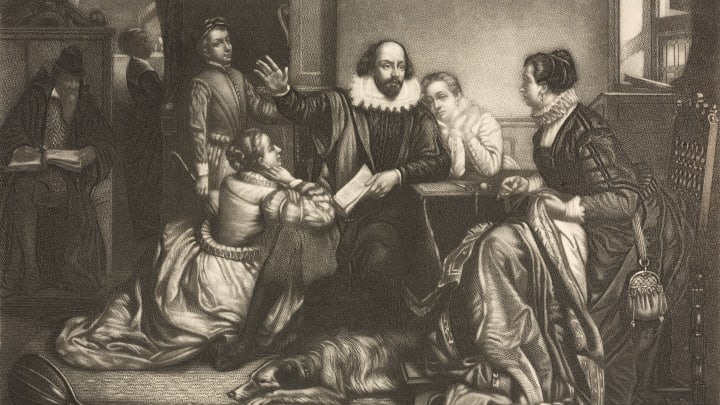
In 1757, nearly 150 years after William Shakespeare ’s death, a pamphlet was found in the rafters of his childhood home. Handwritten and signed by a ‘J. Shakespeare,’ the document was a passionate Catholic profession of faith. It was a promise to die a good Catholic death, understandably hidden in the rafters during a time when the Protestant Church of England was essentially at war with Catholicism. Discovery could’ve meant torture, or even death.
For years, scholars have considered this pamphlet to be the work of John Shakespeare, William’s father, and used it as evidence that the Shakespeare we all know and love was likely raised in a secretly, and perhaps fervently, Catholic household.
But new analysis of the booklet calls all of that into question. Archival research examining a 1790 copy of the document—as the original was, unfortunately, lost—in addition to other texts from Shakespeare’s time shows that it probably wasn’t written by John Shakespeare, as had always been assumed. Rather, it was the work of William’s younger sister, Joan.
“The Last Will and Testament of the Soul”
Researcher and University of Bristol professor Matthew Steggle pieced together timelines using numerous internet archives to prove that the document must be hers. The writing, it turns out, is actually an incomplete translation of “The Last Will and Testament of the Soul,” an Italian text Steggle deduced originated several years after John’s death in 1601. Meanwhile, Joan was the only other J. Shakespeare living during this period. As a simple matter of dates, the pamphlet must have been hers—a shocking revelation that makes it her only surviving piece of writing.
Steggle’s discovery sets the record straight on an important document in Shakespeare family history. It seems we know less about William Shakespeare’s religious life than ever, given that Joan’s ideologies doesn’t necessarily reflect the attitudes of their childhood home. But beyond that, this revelation gives us crucial insight into the mystery of Shakespeare’s sister.
Who Was Joan Shakespeare Hart?
Not much is known about Joan Shakespeare Hart. Born in 1569, five years after the famous bard, she was the only one of William’s seven siblings to survive him. We know that Joan married a hatter, William Hart, had four children, and lived in a cottage on the Shakespeare estate. Her legacy has endured, albeit differently than her brother’s; her descendants are now his most direct living relatives. But we know little about Joan the person and what she was like. The “Spiritual Testament” gives Joan a voice of her own for the first time.
“I, [Joan] Shakespeare, do protest that I will willingly accept of death in whatsoever manner it may befall me, conforming my will unto the will of God,” she writes . “Accepting of the same in satisfaction for my sins and giving thanks unto his divine majesty for the life he hath bestowed upon me.”
She goes on to claim Saint Winifred as a patron saint whom she hopes will comfort her in her last hours, another key indicator that Joan was likely the writer. Saint Winifred’s life story centered around staving off unwanted suitors, making her a particular favorite among women.
“Shakespeare’s Sister”
Steggle himself feels that Joan Shakespeare Hart’s symbolic meaning as William Shakespeare’s sister makes his discovery all the more important:
“There are only seven surviving documents from Joan’s lifetime that even mention her by name. Virginia Woolf wrote a famous essay, “Shakespeare’s Sister,” about how a figure like her could never hope to be a writer or have her writing preserved, so she has become something of a symbol for all the lost voices of early modern women. There are hundreds of thousands of words surviving from her brother, and until now none at all, of any description, from her.”
Women like Joan are largely lost to history , with records proving they existed at best. But Steggle’s findings have turned the tides in this particular case: Joan’s risky dedication to her faith survives hundreds of years later alongside her brother’s plays.
A Remarkable Discovery of a Document Shatters One of Shakespeare's Biggest Mysteries
A secret parchment has resurfaced, rewriting the Bard’s sketchy family history.
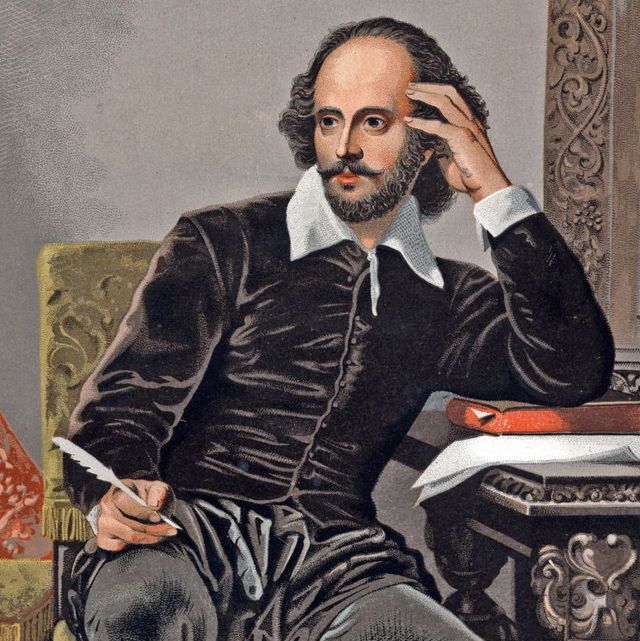
In the annals of William Shakespeare ’s legacy, a twist has emerged that’s practically as dramatic as any of the Bard’s plays: the real “Shakespeare” behind a centuries-old family document has been revealed ... and it’s not the man we expected.
In 1757, a bricklayer found a religious document hidden in the rafters of the Shakespeare House in Stratford-upon-Avon, England. Historians have long attributed the document, which was signed, “ J. Shakespeare ,” to William’s father, John.
But a new study in Shakespeare Quarterly, from scholars at the University of Bristol, claims John wasn’t actually the writer of the scrutinized document. Instead, the researchers say it was William’s relatively unknown younger sister, Joan Shakespeare Hart, who is mentioned by name in only seven surviving documents from her lifetime, study author Matthew Steggle said in a statement :
“Virginia Woolf wrote a famous essay, Shakespeare’s sister , about how a figure like her could never hope to be a writer or have her writing preserved, so she has become something of a symbol for all the lost voices of early modern women. There are hundreds of thousands of works surviving from her brother, and until now, none at all, of any description, from her.”
In the tucked-away document, which heavily cites an obscure 17 th century Italian religious tract called The Last Will and Testament of the Soul, the writer pledges to die a good Catholic death. If the writer was indeed John Shakespeare, who remained a devout Protestant until his death in 1601, it would have indicated a major shift in his beliefs and suggested a clandestine life during an era when secret allegiance to the Catholic Church in Elizabethan England could have been dangerous. For this reason, many experts have suspected the document to be forged.
But in the new study, Steggle used internet archives to track down early editions of The Last Will and Testament of the Soul in Italian and six other languages and concluded the document could have only been written after John Shakespeare’s death. That left Steggle with just one other “J. Shakespeare”: Joan.
Joan, who was five years younger than William, survived for 30 years after her brother’s death, and long resided in the family home where the document was found.
“Even 30 years ago, a researcher approaching a problem like this would have been based in a single big research library, using printed catalogues and even card catalogues to try to find copies of this text,” Steggle said in the statement. “But research libraries have now made many of their resources available digitally, so that it is possible to look across many different libraries in different countries at once, and what’s more, you can look through the whole text, not just at the title and other details.”
Steggle emphasized the importance of this approach in aligning the document’s quotes with the original timing of the composition of The Last Will and Testament of the Soul. Joan, then, who outlived her tradesman husband and had four children in the old Shakespeare family house, had to have been the secret Catholic supporter.
The mystery flourished for centuries, in part, because William Shakespeare himself was a secretive figure, Biography writes .
Shakespeare, who lived from 1564 to 1616, left behind no letters, no handwritten manuscripts, few contemporary accounts, and only six signatures, all spelled differently. It seems almost unbelievable to scholars and critics that the country boy from Stratford-upon-Avon who never attended university wrote 37,000 words for his plays and added roughly 300 words to the English vocabulary.
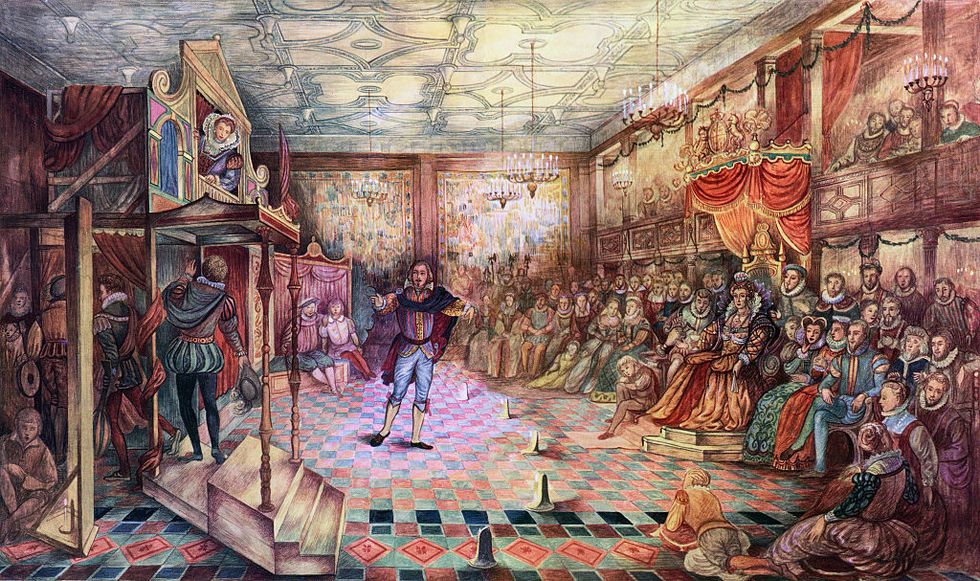
Yet, the scarcity of Shakespeare’s personal artifacts does little to dim the luster of his legacy, which stands in stark contrast to his modest, mysterious origins.
The early years of Shakespeare’s life are murky. According to Biography , he was born to a father, John, who managed a portfolio as a landowner, moneylender, local official, and glover and leather craftsman. Instead of pursuing higher education, Shakespeare’s knowledge was gleaned from life experiences, absorbing wisdom from his dad’s civic engagements and perhaps gaining insights from his son-in-law, who was a doctor.
The idea that Shakespeare kept his London-based professional life separate from his personal life in Stratford-upon-Avon plays into the recent findings regarding his sister, Joan. “This secretive attitude,” Biography writes, “may have been because much of his family were known Catholic sympathizers and chose to live quietly in Protestant Elizabethan England. In fact, some believe Shakespeare himself received Catholic communion on his death bed.”
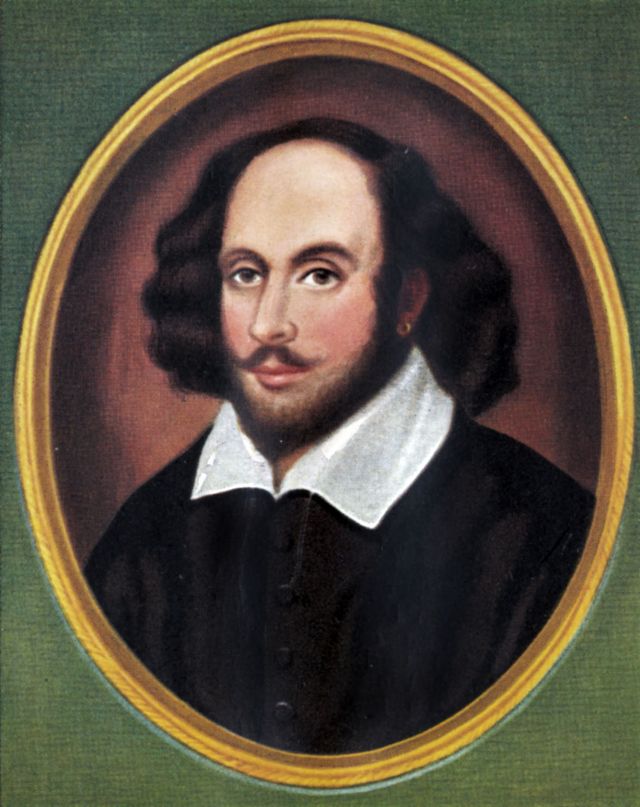
Shakespeare wasn’t known to be loud and boisterous; instead, he carried an air of mystery, relishing the relative anonymity provided by Stratford life. Following his marriage to Anne Hathaway and the birth of their children, there’s a seven-year gap in his historical record. These are known as the “lost years.”
Speculation about William Shakespeare’s “lost years” varies widely; some suggest he may have been in hiding due to accusations of poaching, while more substantiated theories propose he was making a living as an actor and playwright in London. But despite this period of obscurity, Shakespeare’s reputation flourished through his poetry, sonnets, and plays.
As a prominent member of the Lord Chamberlain’s Men, a renowned London acting company, Shakespeare invested in his craft, and his financial success allowed him to buy New Place, one of the largest houses in Stratford-upon-Avon. Shakespeare’s theatrical endeavors didn’t stop there; in collaboration with fellow actors, he started the iconic Globe Theater, which became synonymous with his celebrated playwriting and solidified his legacy.
As Shakespeare grew his name in London’s theaters, he simultaneously established himself as a prominent figure in his hometown of Stratford. Acquiring the family estate in 1601 and subsequently purchasing 107 acres the following year, he strategically invested in additional properties. Experts suggest that the income from leasing these lands gave him the financial stability to pursue his writing.
Meanwhile, Joan resided in the Shakespeare family home amidst speculation and secrets. And its rafters served as a vault for her Italian-inspired religious writings—a hidden gem that’s still sparking scholarly intrigue, and revealing new layers to the Shakespeare legacy today.
Tim Newcomb is a journalist based in the Pacific Northwest. He covers stadiums, sneakers, gear, infrastructure, and more for a variety of publications, including Popular Mechanics. His favorite interviews have included sit-downs with Roger Federer in Switzerland, Kobe Bryant in Los Angeles, and Tinker Hatfield in Portland.

.css-cuqpxl:before{padding-right:0.3125rem;content:'//';display:inline;} Pop Mech Pro .css-xtujxj:before{padding-left:0.3125rem;content:'//';display:inline;}

The F-22 Raptor Has Clawed Back From the Brink

Watch a Master Craftsman Create a Ship in a Bottle

The Army Has a Plan to Kill Drones

Inside the Final Minutes of a Horrible Train Wreck

This Is the Most Lethal Submarine in the Sea

Build a DIY Eclipse Viewer in Minutes

Navy Helicopters Have Morphed Into Drone Killers
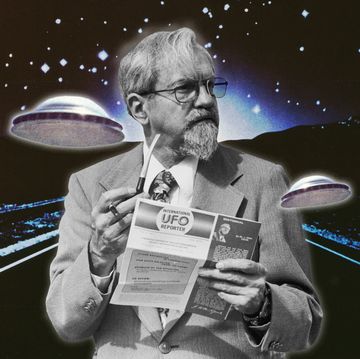
J Allen Hynek: The Man Who Made Us Watch the Skies

Army: The Days of Towed Artillery Are Over

The Right Way to Prune a Tree

Simplified Furniture Refinishing

IMAGES
VIDEO
COMMENTS
1,000 Word Essay on the Life Of William Shakespeare. William Shakespeare is arguably one of the most famous writers of all time. He has written thirty eight plays, two narrative poems, several other poems and one hundred fifty four sonnets. Some of his most famous poems are Hamlet and Romeo and Juliet. Those two poems are just a few of the many ...
500 Words Essay On William Shakespeare. William Shakespeare was certainly a very famous writer. The man is credited with an unbelievable thirty-eight plays, two narrative poems, several other poems and a whopping one hundred fifty-four sonnets. So let us take a peek inside the life of this genius with this essay on William Shakespeare.
William Shakespeare (baptized April 26, 1564, Stratford-upon-Avon, Warwickshire, England—died April 23, 1616, Stratford-upon-Avon) English poet, dramatist, and actor often called the English national poet and considered by many to be the greatest dramatist of all time.. Shakespeare occupies a position unique in world literature.Other poets, such as Homer and Dante, and novelists, such as Leo ...
Since William Shakespeare lived more than 400 years ago, and many records from that time are lost or never existed in the first place, we don't know everything about Shakespeare's life. For example, we know that he was baptized in Stratford-upon-Avon, 100 miles northwest of London, on April 26, 1564. But we don't know his exact birthdate ...
Life & Times. 1564-1616. In his 52 years of life William Shakespeare transformed himself from the son of a small-town glovemaker to a favorite playwright of Queen Elizabeth and King James. Today he is celebrated as the most popular writer in the English language.
Listen to this essay: Read by Ian Merrill Peakes - a special recording for The Folger Shakespeare by the Folger Theatre. Surviving documents that give us glimpses into the life of William Shakespeare show us a playwright, poet, and actor who grew up in the market town of Stratford-upon-Avon, spent his professional life in London, and returned ...
William Shakespeare, (baptized April 26, 1564, Stratford-upon-Avon, Warwickshire, Eng.—died April 23, 1616, Stratford-upon-Avon), English poet and playwright, often considered the greatest writer in world literature.. Shakespeare spent his early life in Stratford-upon-Avon, receiving at most a grammar-school education, and at age 18 he married a local woman, Anne Hathaway.
Life of William Shakespeare. William Shakespeare was an actor, playwright, poet, and theatre entrepreneur in London during the late Elizabethan and early Jacobean eras. He was baptised on 26 April 1564 [a] in Stratford-upon-Avon in Warwickshire, England, in the Holy Trinity Church. At the age of 18, he married Anne Hathaway, with whom he had ...
An Introduction. William Shakespeare was a renowned English poet, playwright, and actor born in 1564 in Stratford-upon-Avon. His birthday is most commonly celebrated on 23 April (see When was Shakespeare born ), which is also believed to be the date he died in 1616. Shakespeare was a prolific writer during the Elizabethan and Jacobean ages of ...
Early life John Shakespeare's house, believed to be Shakespeare's birthplace, in Stratford-upon-Avon. Shakespeare was the son of John Shakespeare, an alderman and a successful glover (glove-maker) originally from Snitterfield in Warwickshire, and Mary Arden, the daughter of an affluent landowning family. He was born in Stratford-upon-Avon, where he was baptised on 26 April 1564.
200 Words Essay on William Shakespeare. William Shakespeare is one of the renowned names of English playwrights. He was a multi-talented man who was a writer, poet and actor. He produced about one hundred and fifty-four sonnets, two narrative poems, thirty-eight plays and a few verses. He was born in Stratford-upon-Avon to a good family with ...
William Shakespeare's Poetry. PDF Cite. One of William Shakespeare's great advantages as a writer was that, as a dramatist working in the public theater, he was afforded a degree of autonomy ...
Essays and criticism on William Shakespeare, including the works Henry IV, Parts I and II, As You Like It, Hamlet, The Tempest, Sonnets - Magill's Survey of World Literature ... Biography Of ...
Consequently, his daughters made "good matches," and married wealthy men. The same year that he joined the Lord Chamberlain's Men, Shakespeare wrote Romeo and Juliet, Love's Labour's Lost, The Taming of the Shrew, and several other plays. In 1600, he wrote two of his greatest tragedies, Hamlet and Julius Caesar.
What Makes a Good William Shakespeare Essay Topic. When it comes to crafting an exceptional essay on the works of William Shakespeare, the choice of topic is paramount. The right topic can breathe life into your essay, making it captivating, unique, and unforgettable.
Essays and criticism on William Shakespeare - Beginnings and Endings. ... London 1933, in The Works and Life of Christopher Marlowe gen ed R.H. Case Cite this page as follows:
Descriptive Essay: The Life of William Shakespeare. The world's most beloved and successful playwright and poet, William Shakespeare, was born in April 1564 and died in 1616 - and that's were certainty about his life begins and ends. The life of William Shakespeare is as mysterious as it gets, frustrating the efforts of generations of ...
The Life of William Shakespeare: Information to Use in an Essay Research is one of the critical parts of the essay writing process that should not be disregarded. To make the task easier for you, we have collected some facts from William Shakespeare's biography that can prove to be useful in your essay:
1564: Shakespeare Born. Christopher Furlong / Getty Images. The life of William Shakespeare begins in April 1564 in Stratford-upon-Avon, England when he was born into a prosperous family (his father was a glove maker). Learn more about Shakespeare's birth and early childhood, and discover the house in which he was born .
Considering the sonnets William Shakespeare wrote, specifically Sonnet 18, this works "affirms the value of poetry itself and [William Shakespeare's] own ability to write poetry which will last and which will convey the beauty of his lover to future generations" (Woolway 2).
William Shakespeare Life And Accomplishments English Literature Essay. The famous "To be or not to be, and that is the question" written by famous poet and actor William Shakespeare. William was born on April 23, 1564. Living past adult hood was a great accomplishment along with everything else he produced or was a part of.
Another theory, according to an 1879 Argosy magazine article, is that a local doctor named Frank Chambers robbed Shakespeare's grave in 1794. According to Colls' research, a writer named ...
A 1834 drawing of Polonius and Hamlet by the French artist Eugène Delacroix. Photograph: Heritage Art/Getty Images "Shakespeare also remembered Thorello's line: 'They would give out ...
While William Shakespeare's reputation is based primarily on his plays, he became famous first as a poet. With the partial exception of the Sonnets (1609), quarried since the early 19th century for autobiographical secrets allegedly encoded in them, the nondramatic writings have traditionally been pushed...
William Shakespeare 's Life And Life William Shakespeare 's life was very interesting, to say the least about him. "An English playwright and poet, William Shakespeare is often considered the greatest dramatist the world has ever known and the most recognized poet in the English language" (Lindaman). From a very young age ...
Essays and criticism on William Shakespeare - Love and Romance ... 14 Nicholas Rowe's "Life of Shakespeare," reprinted in The Plays and Poems of William Shakespeare, ed. James Boswell (London, ...
In 1757, a bricklayer found a religious document hidden in the rafters of the Shakespeare House in Stratford-upon-Avon, England. Historians have long attributed the document, which was signed ...
Now, it may shed new light on the famous playwright's mysterious younger sister Joan. In 1757, nearly 150 years after William Shakespeare 's death, a pamphlet was found in the rafters of his ...
Shakespeare wasn't known to be loud and boisterous; instead, he carried an air of mystery, relishing the relative anonymity provided by Stratford life. Following his marriage to Anne Hathaway ...